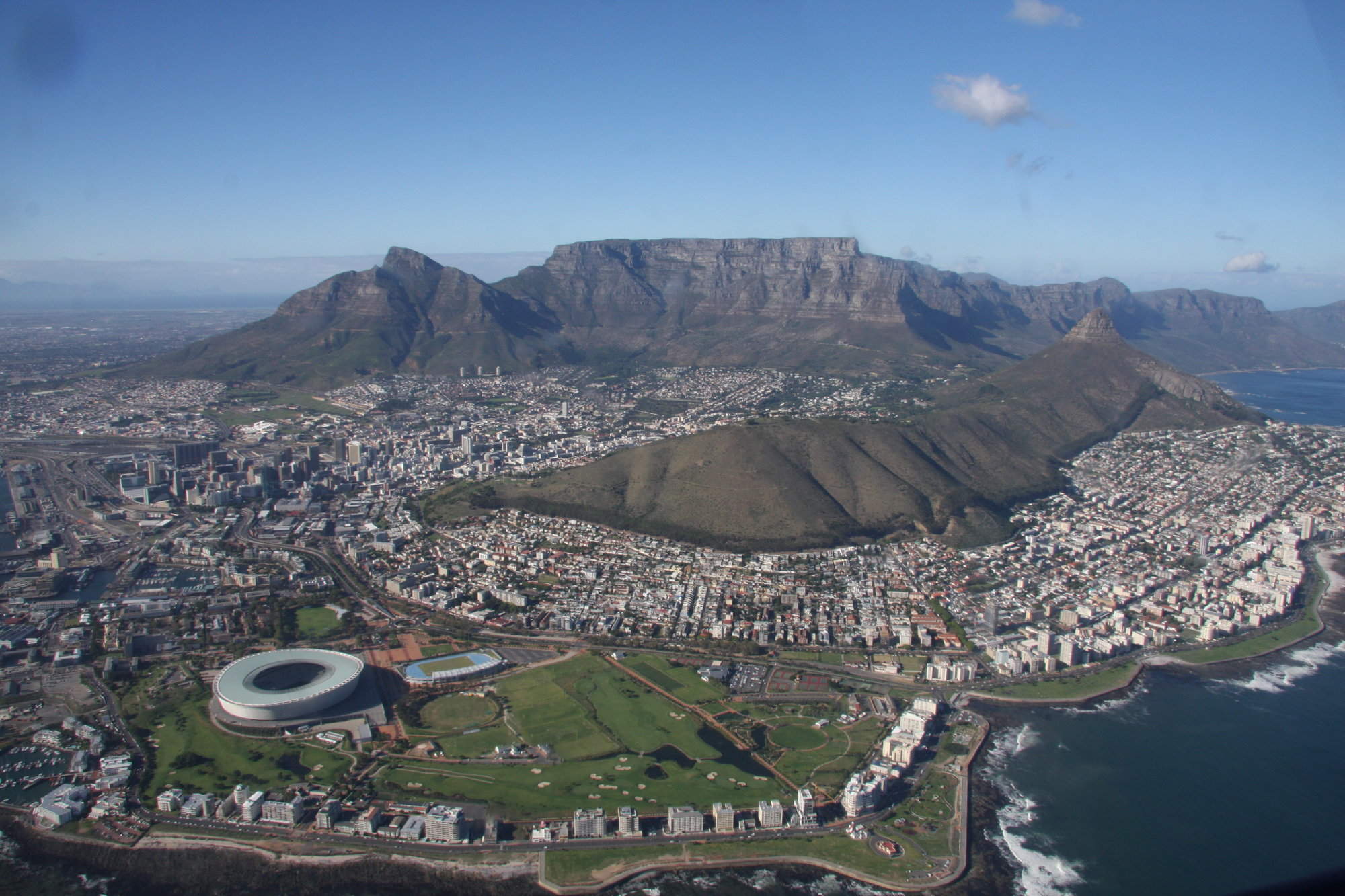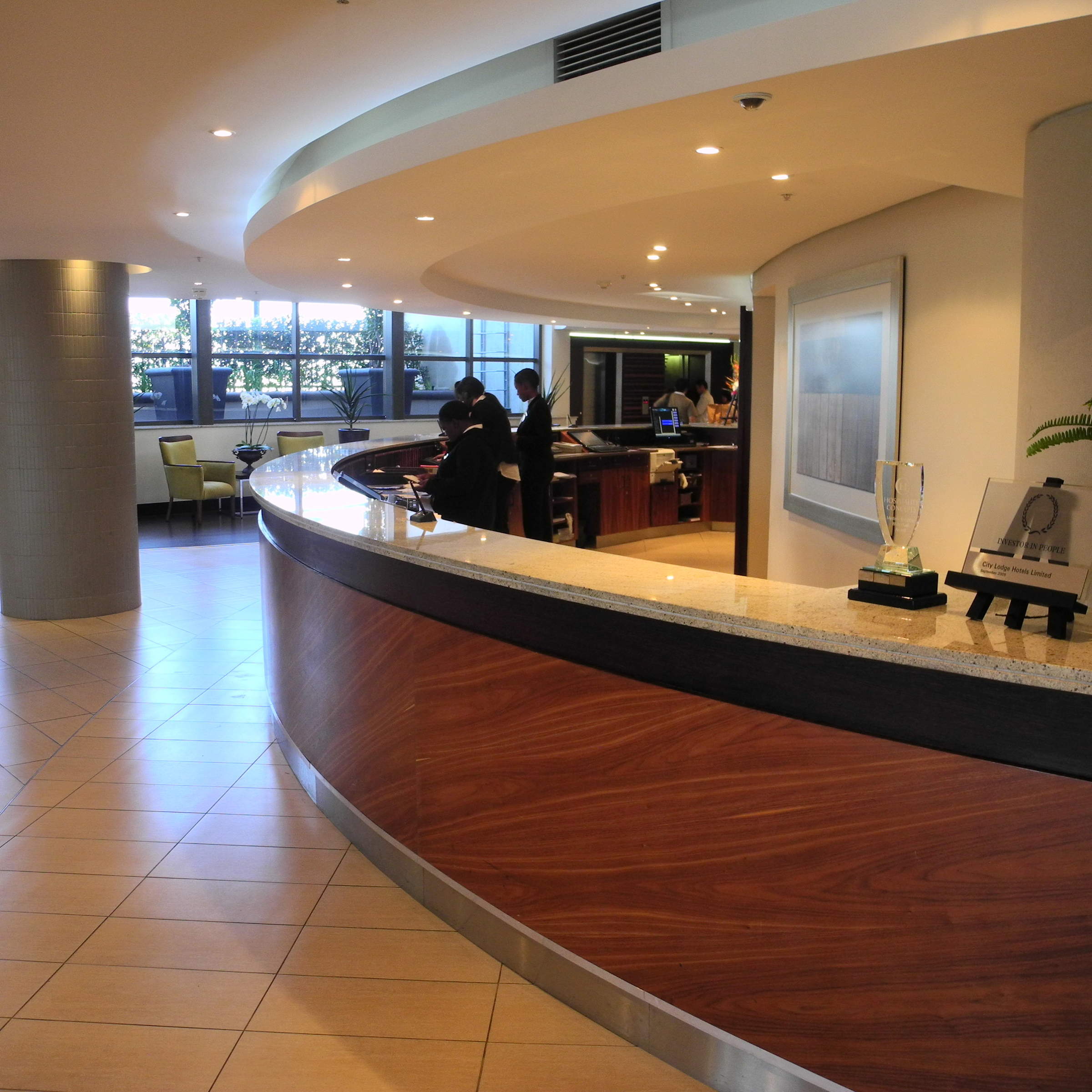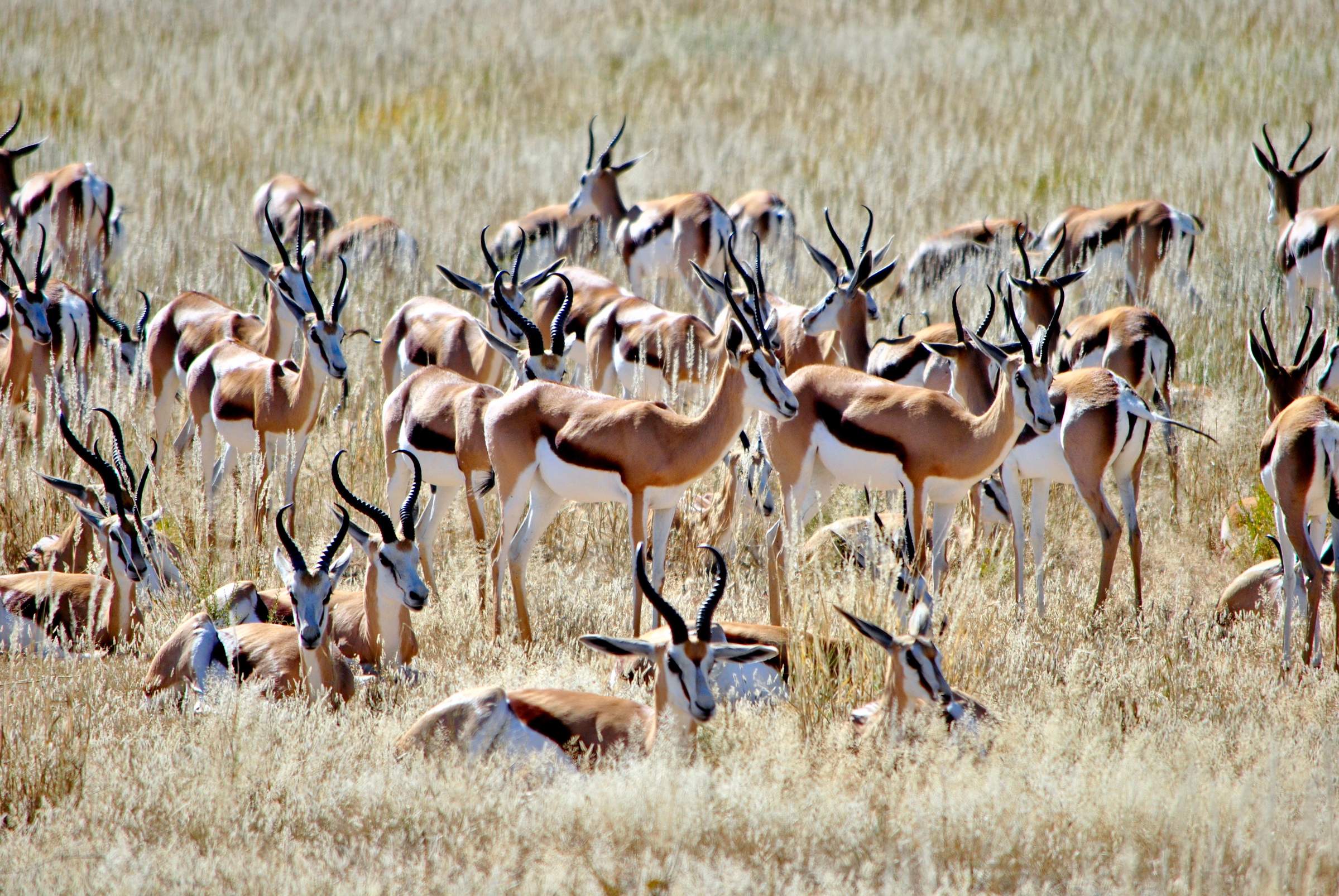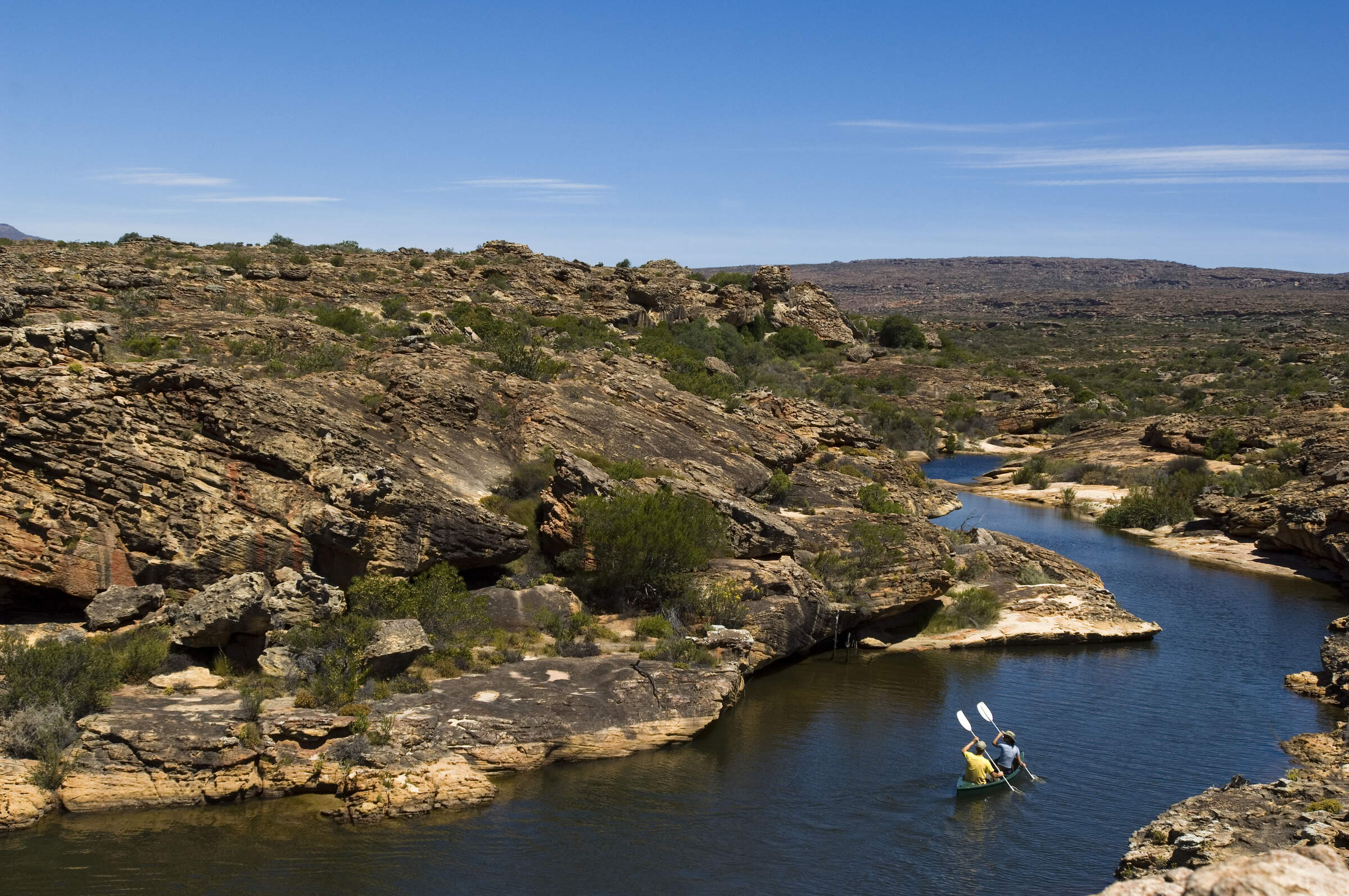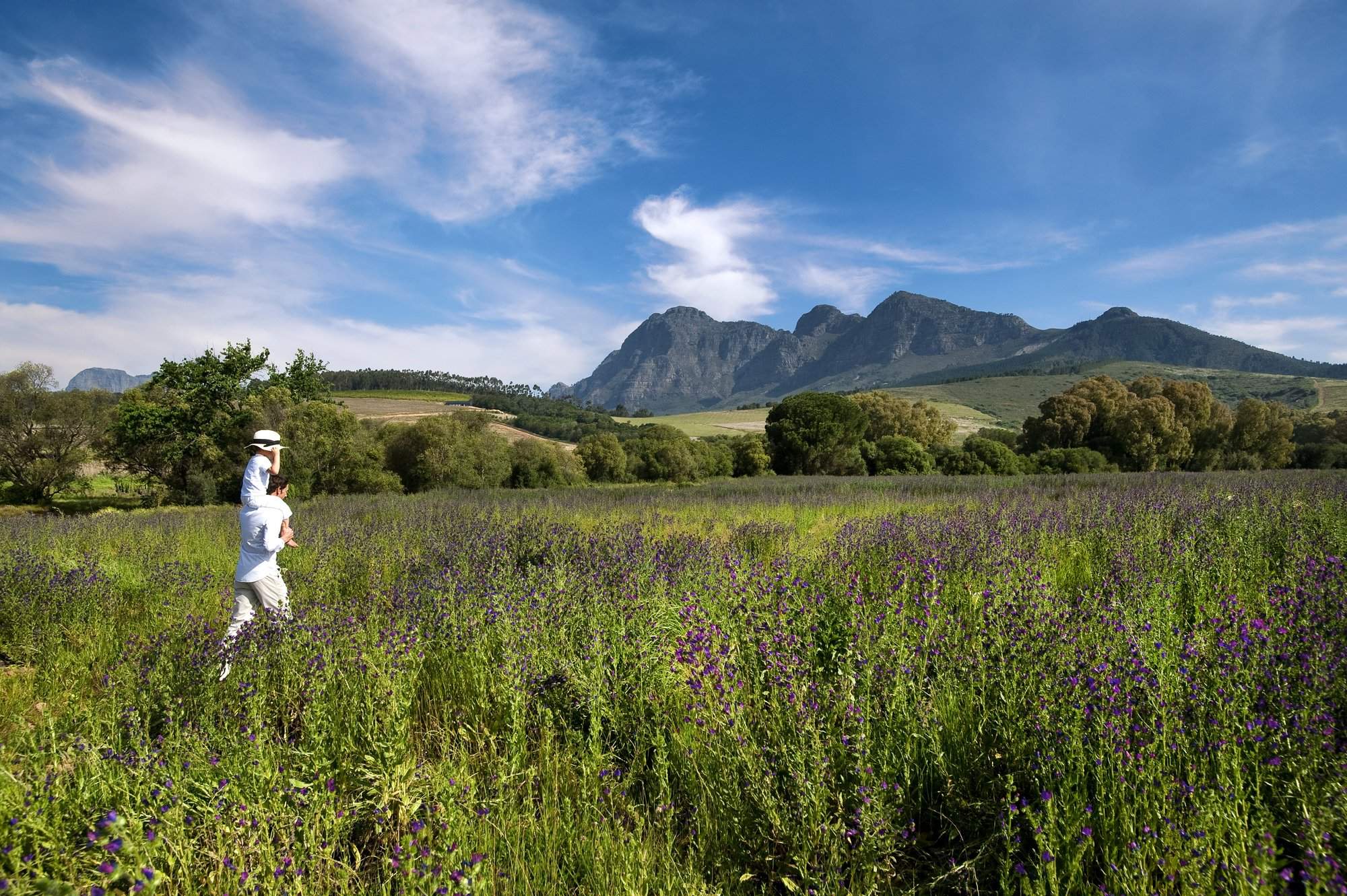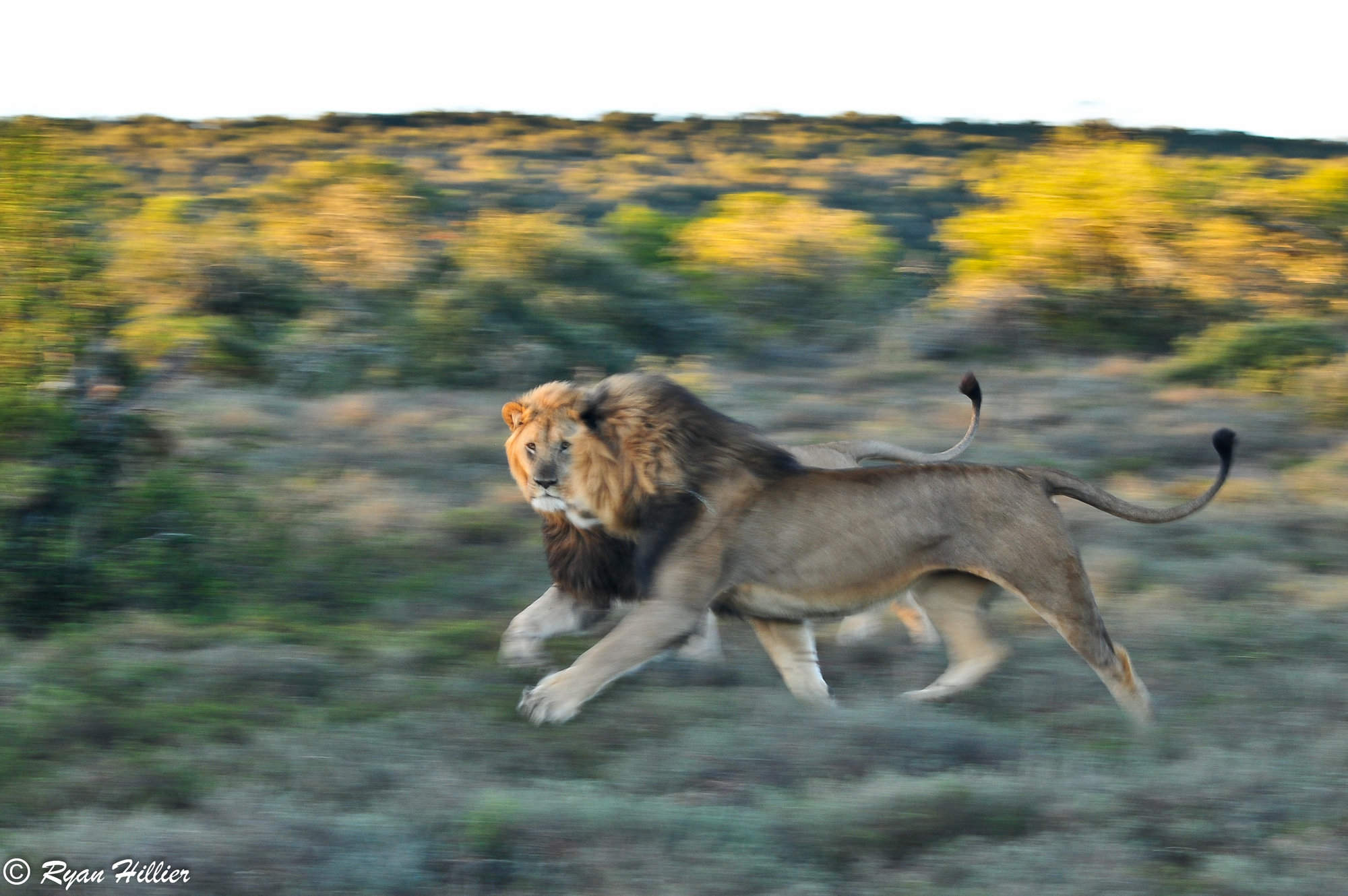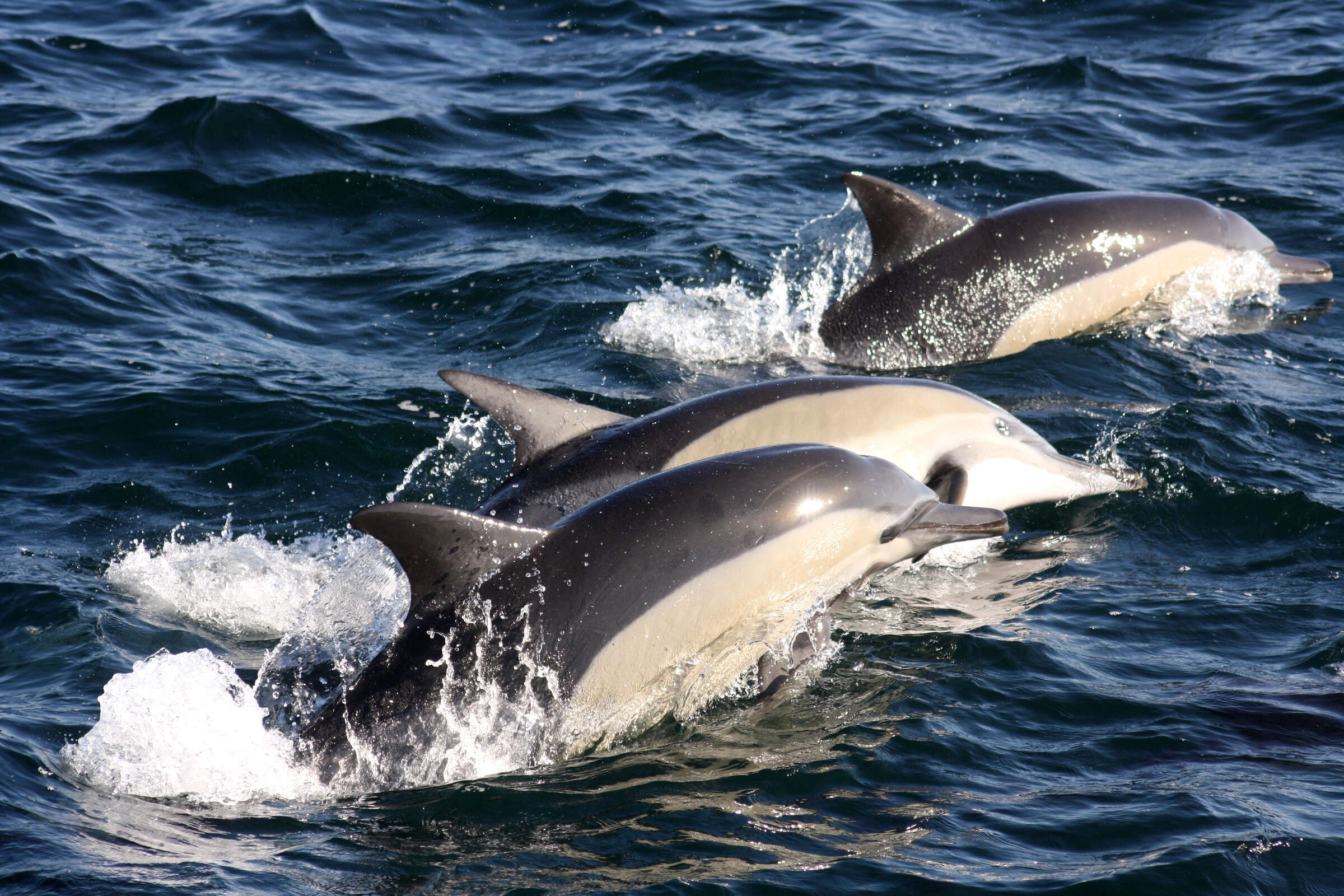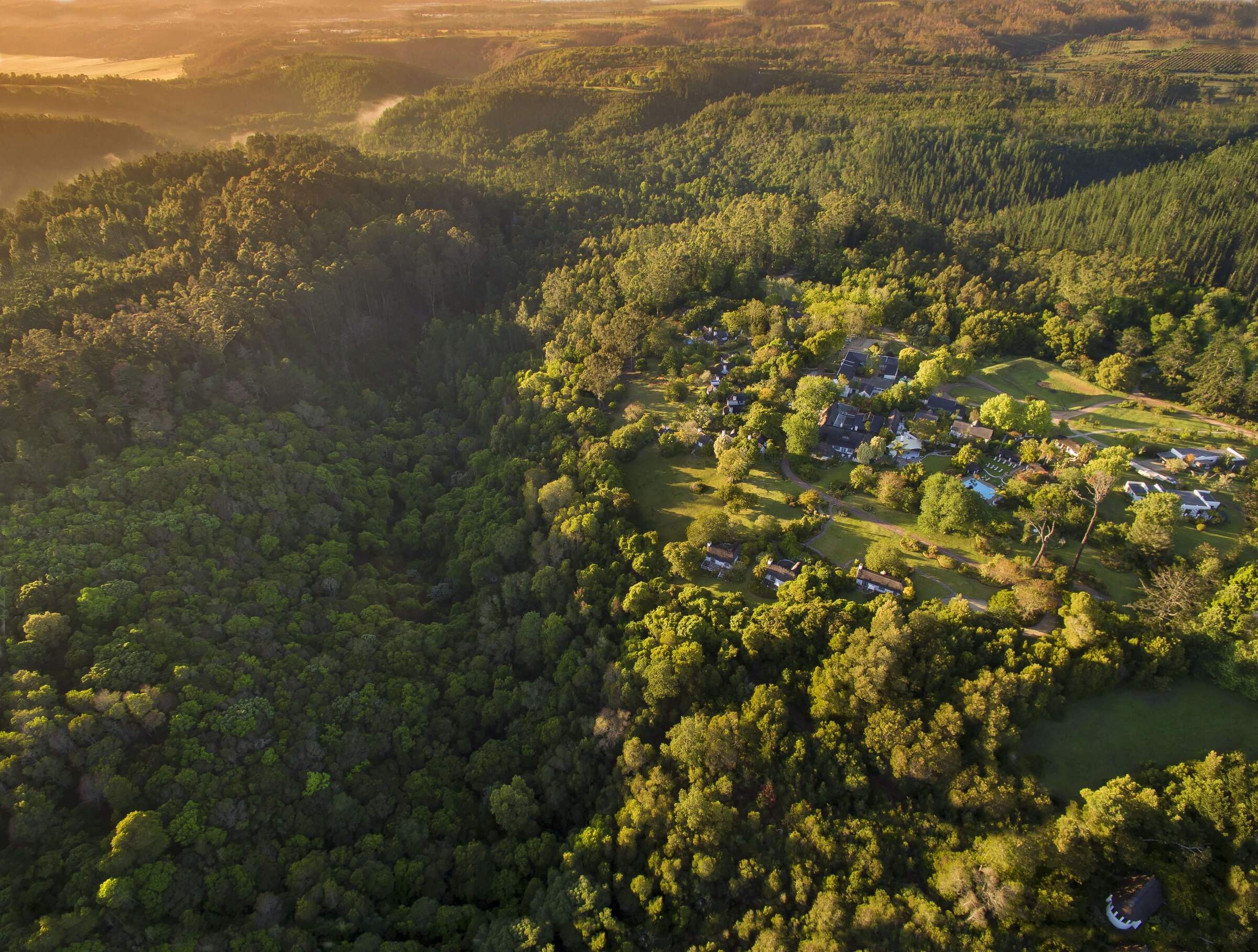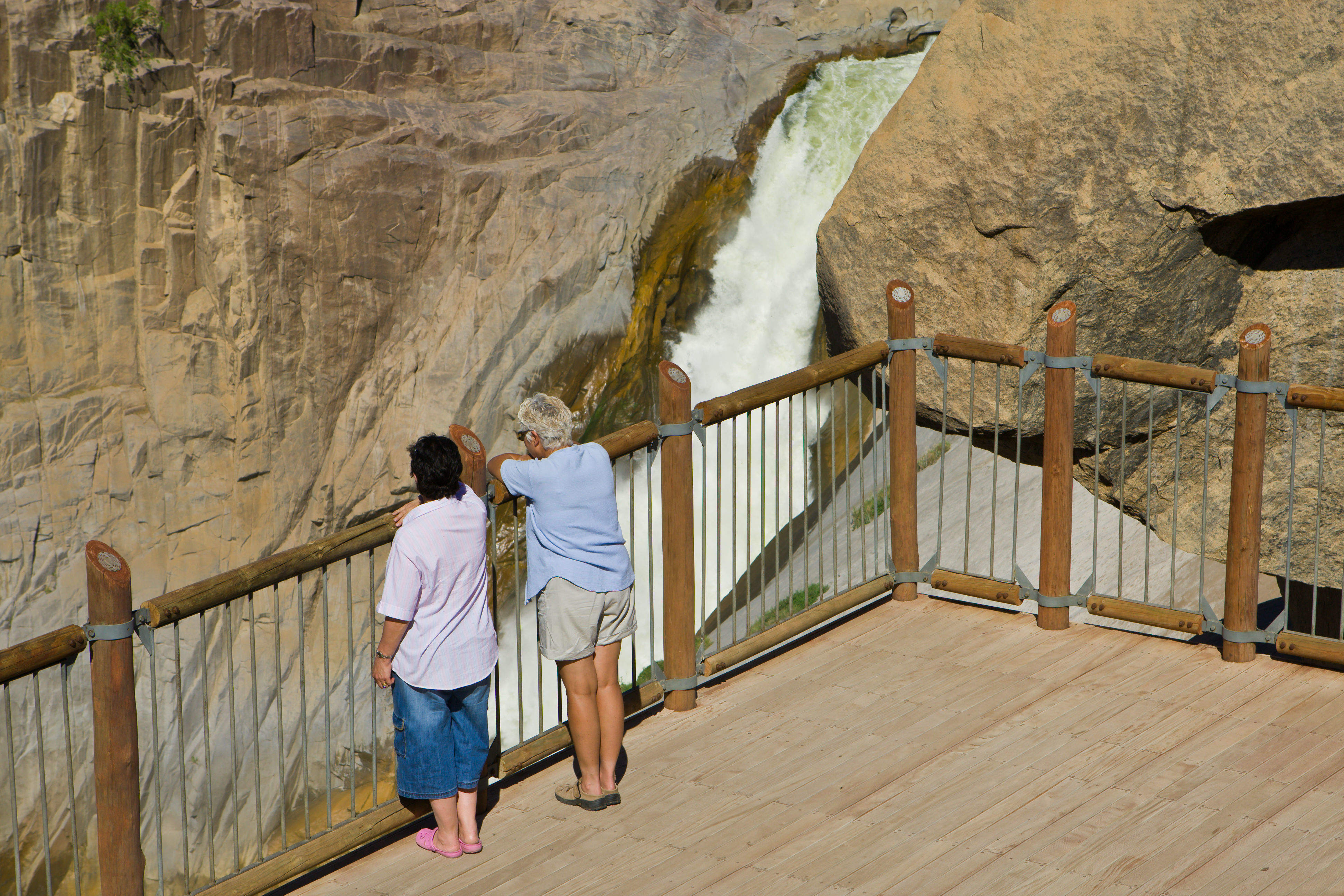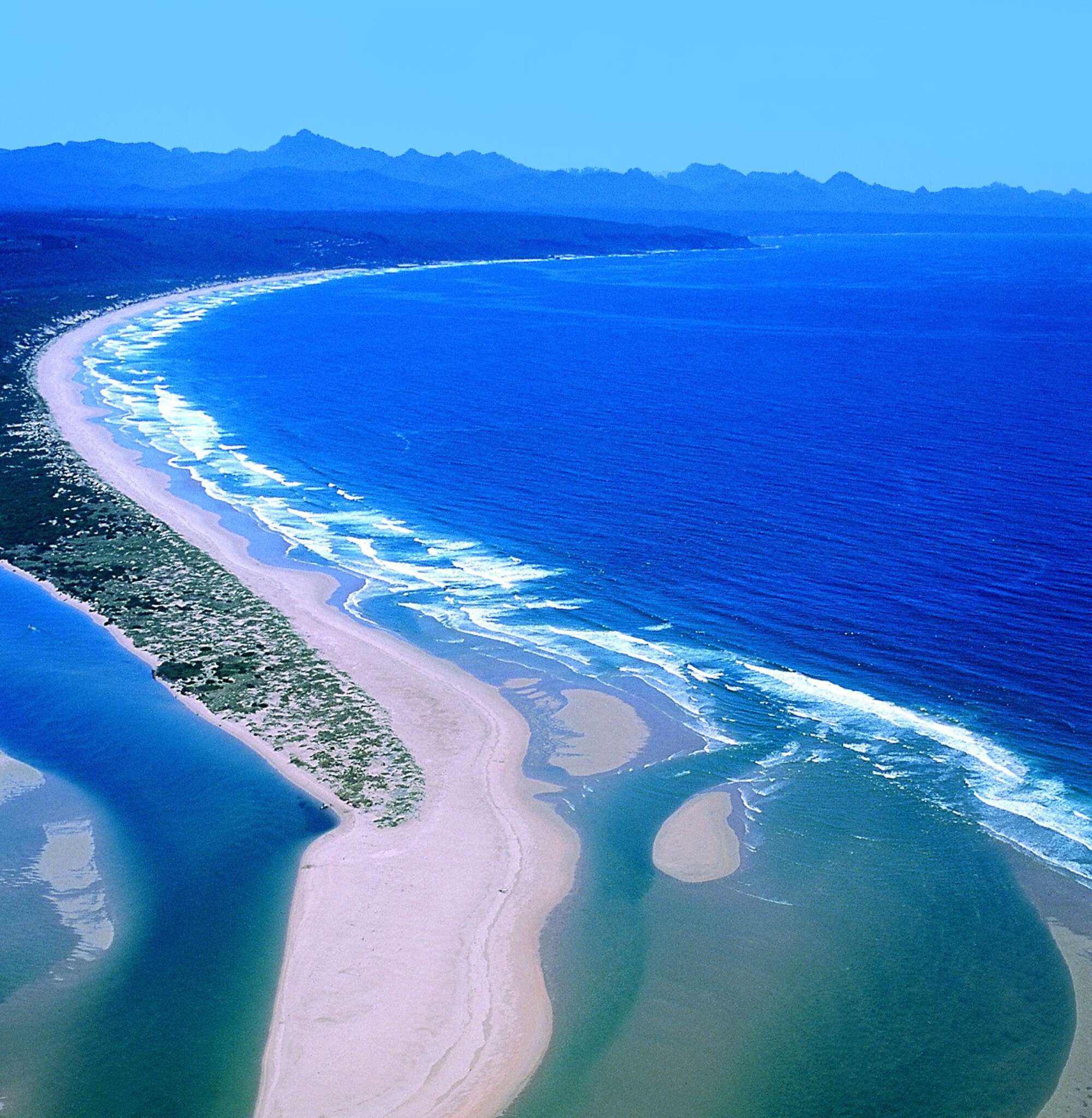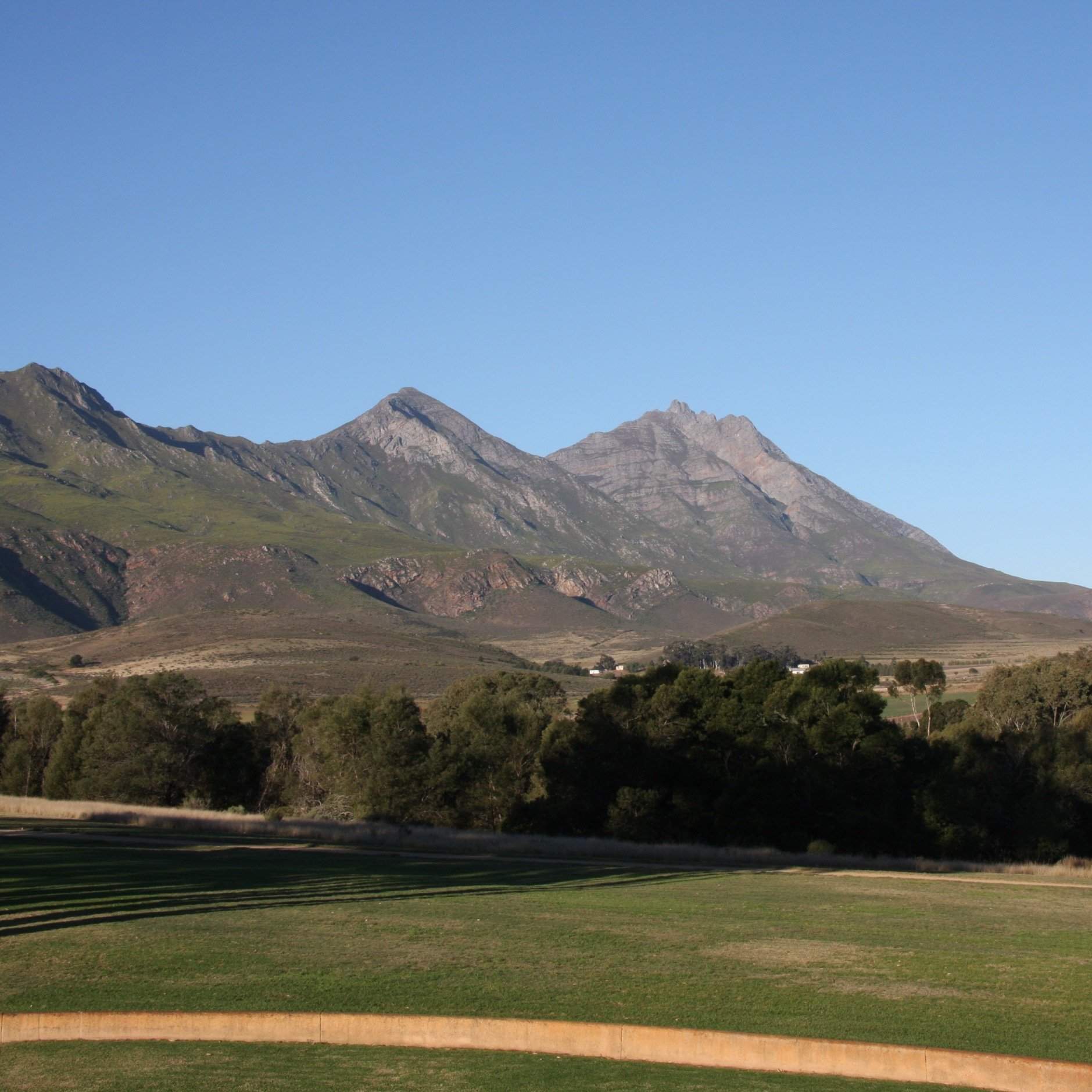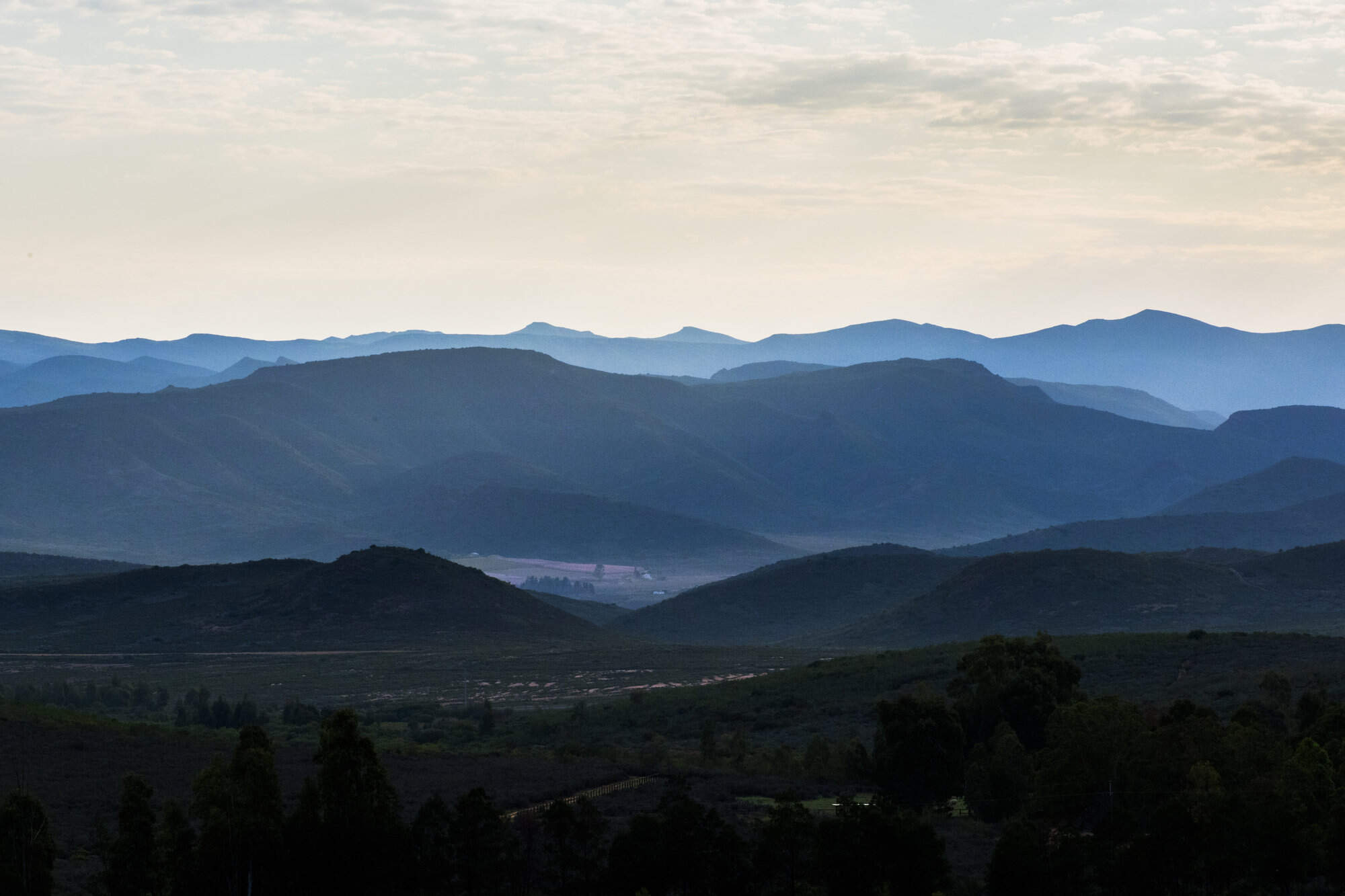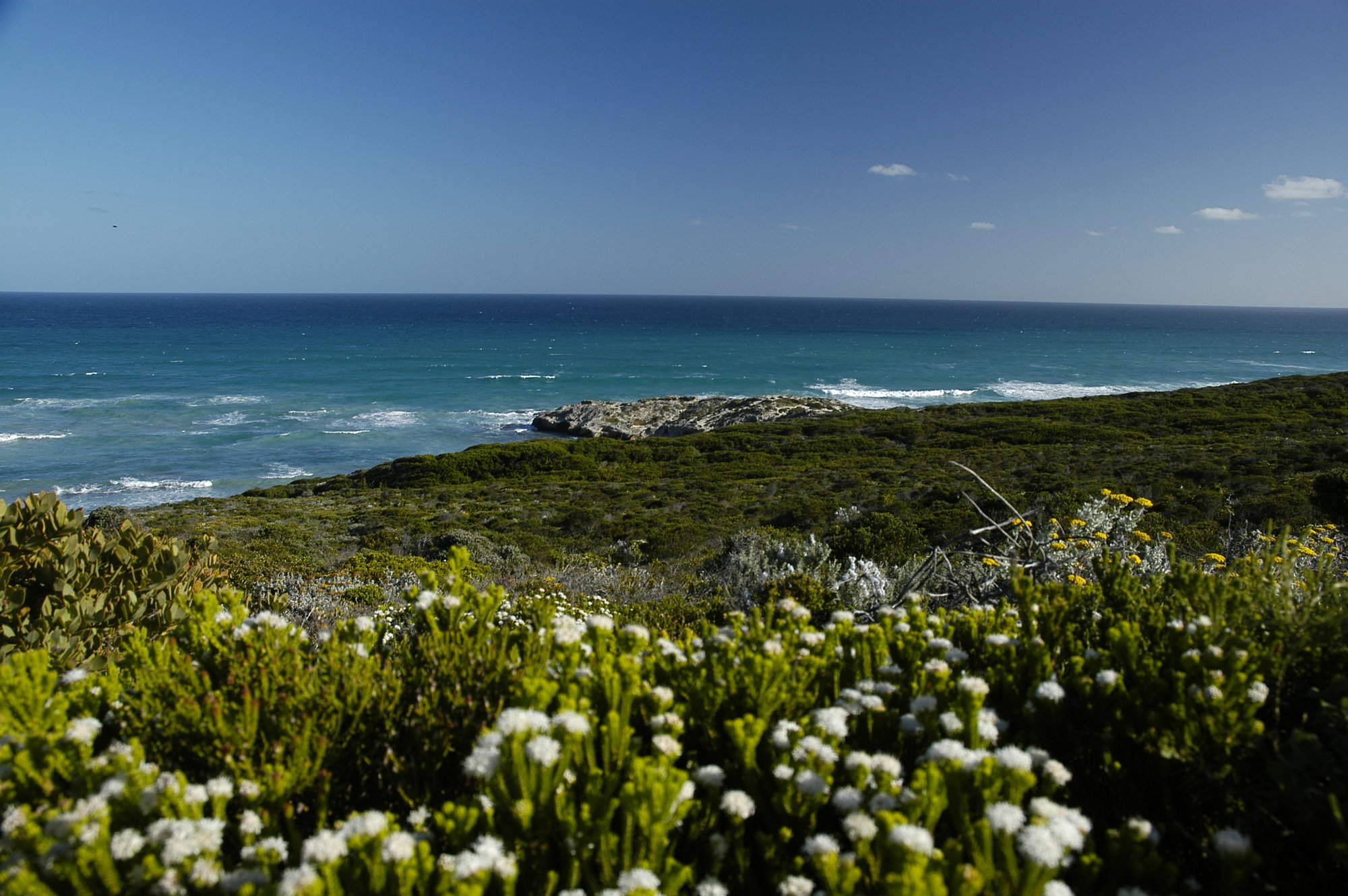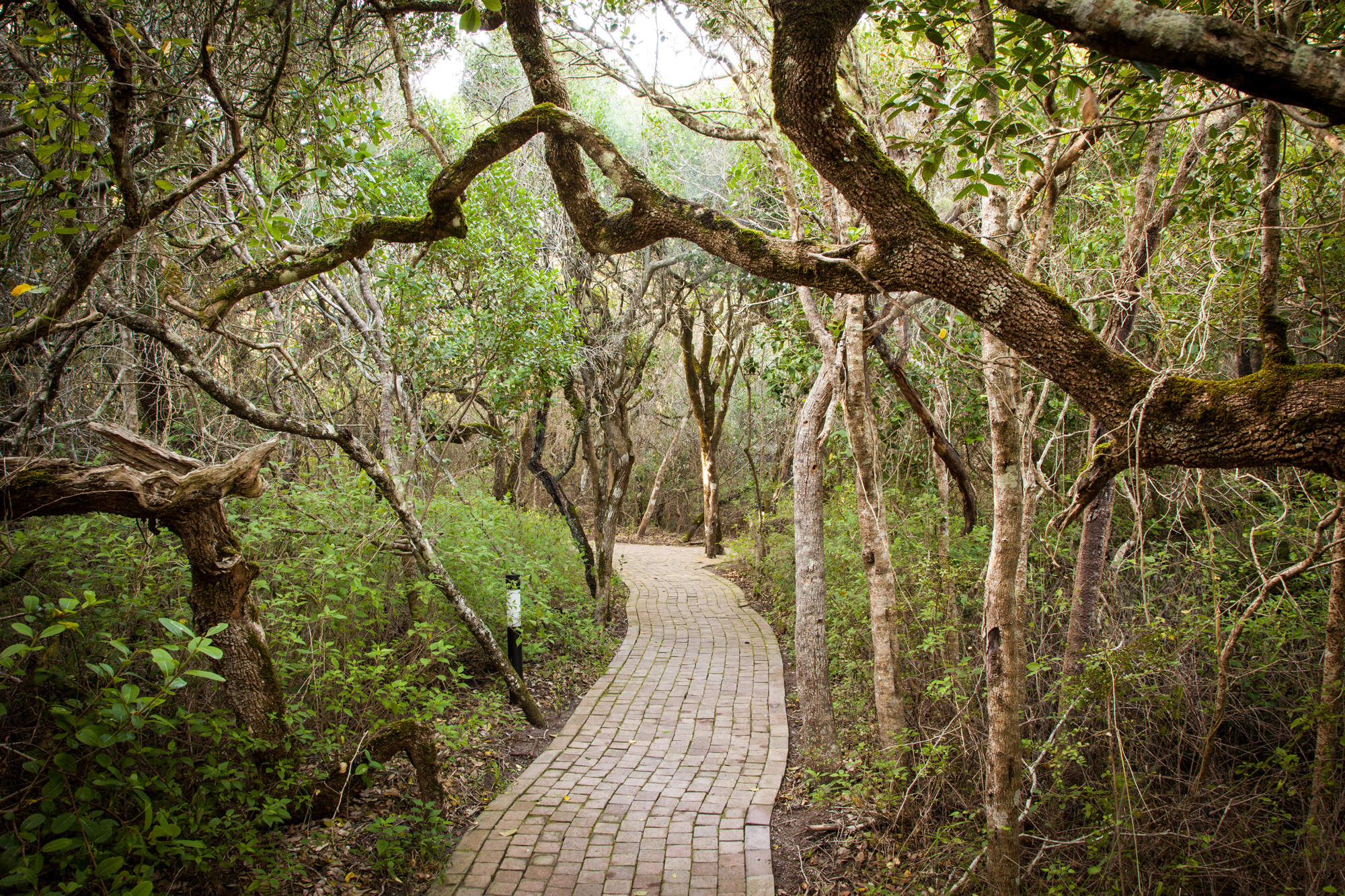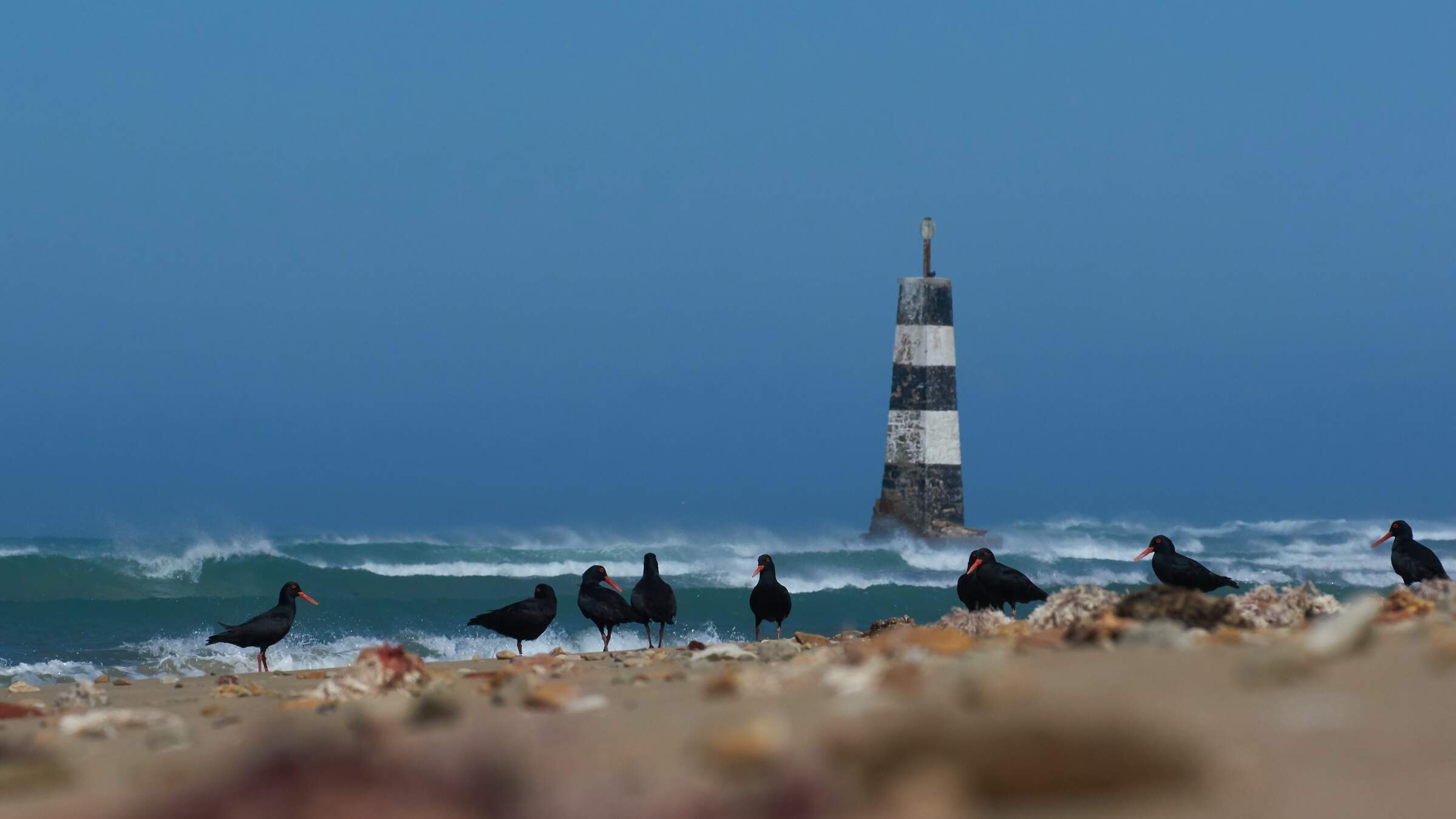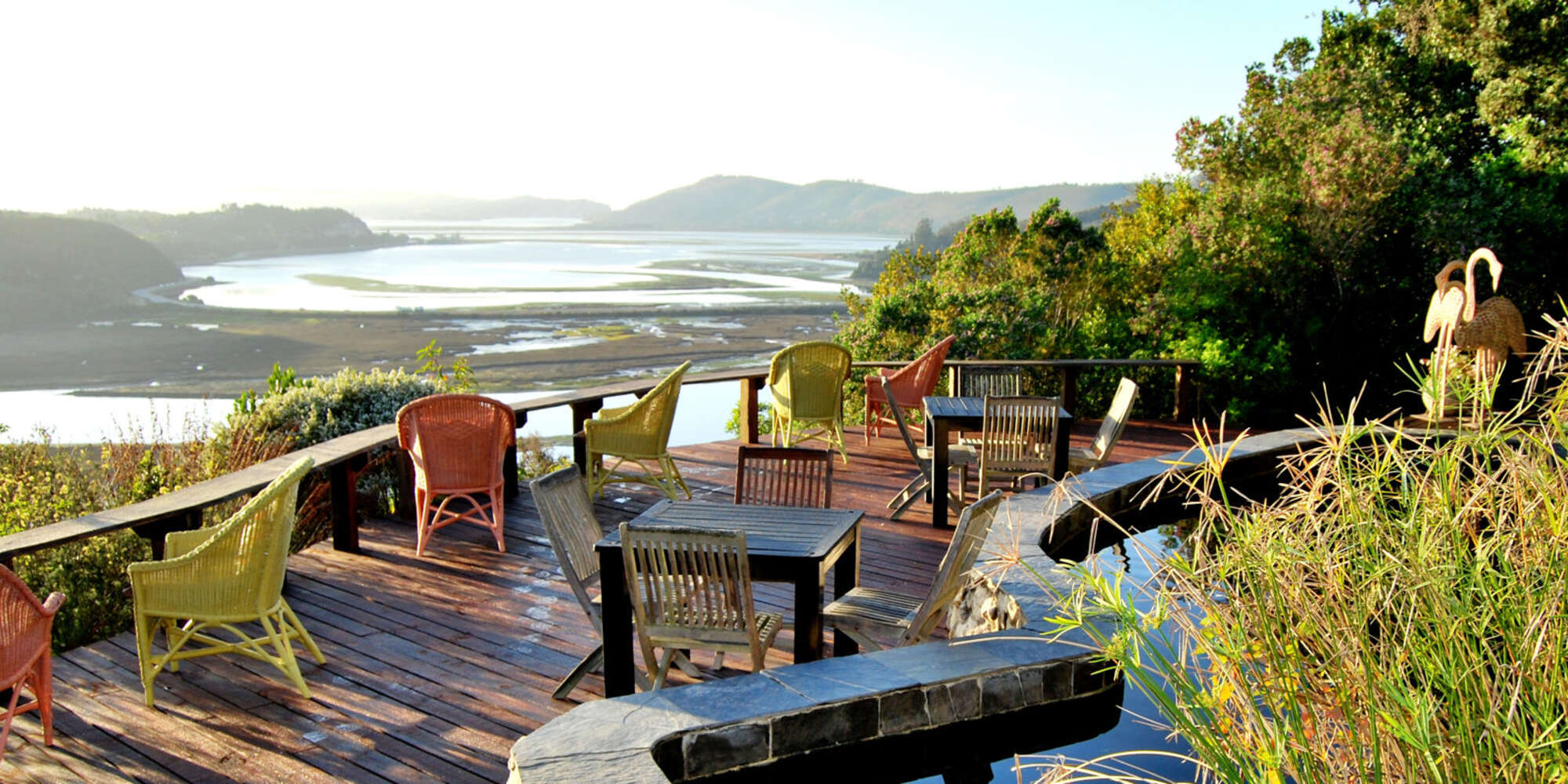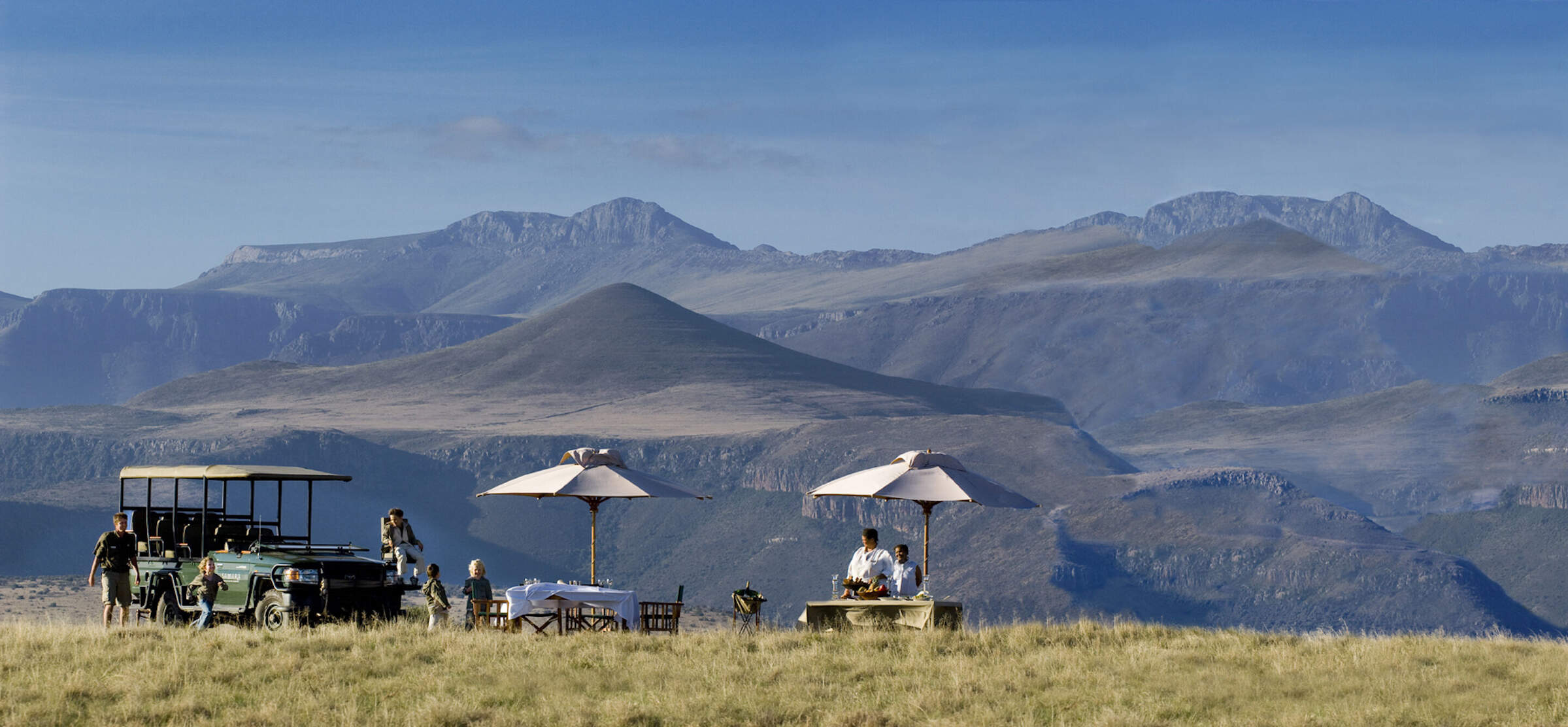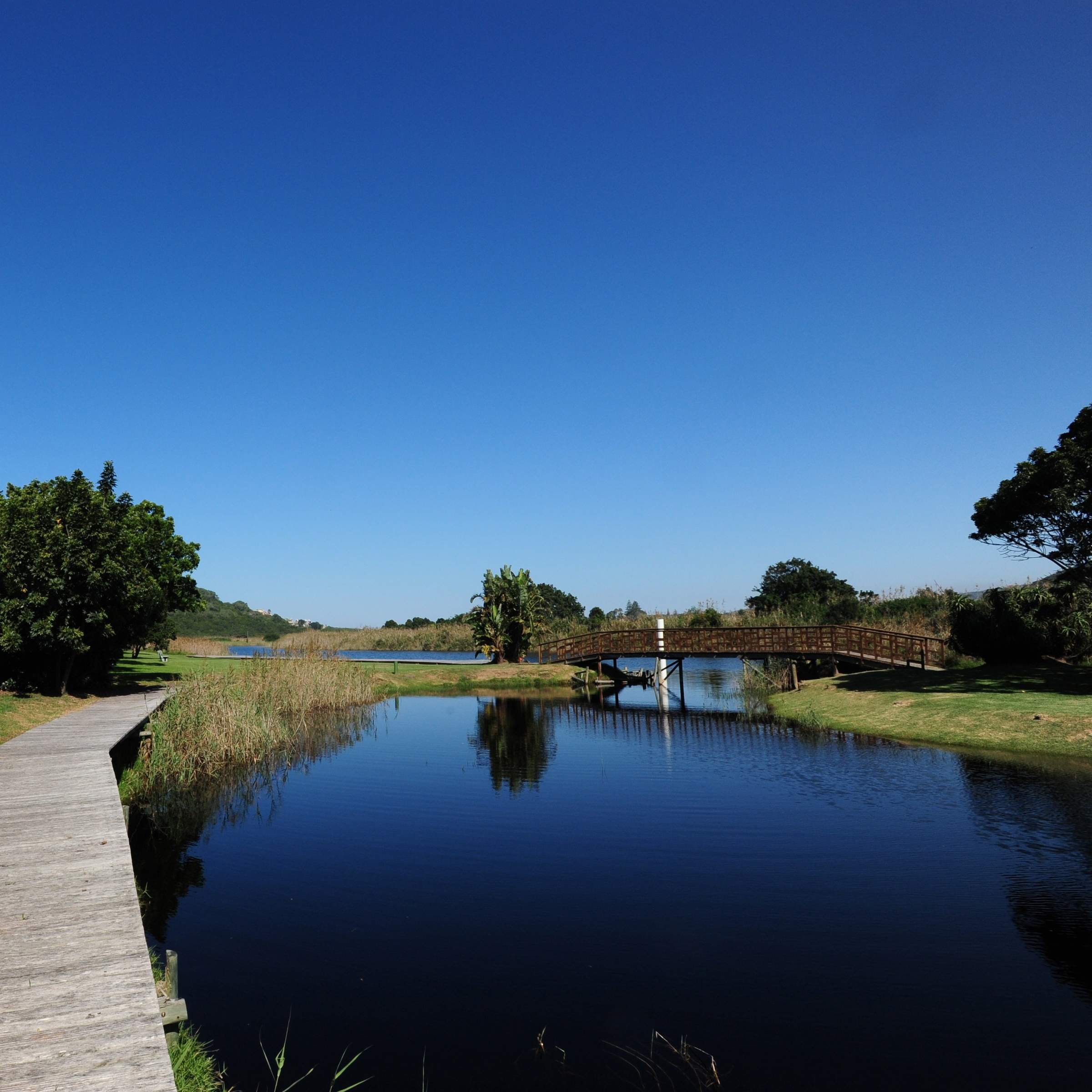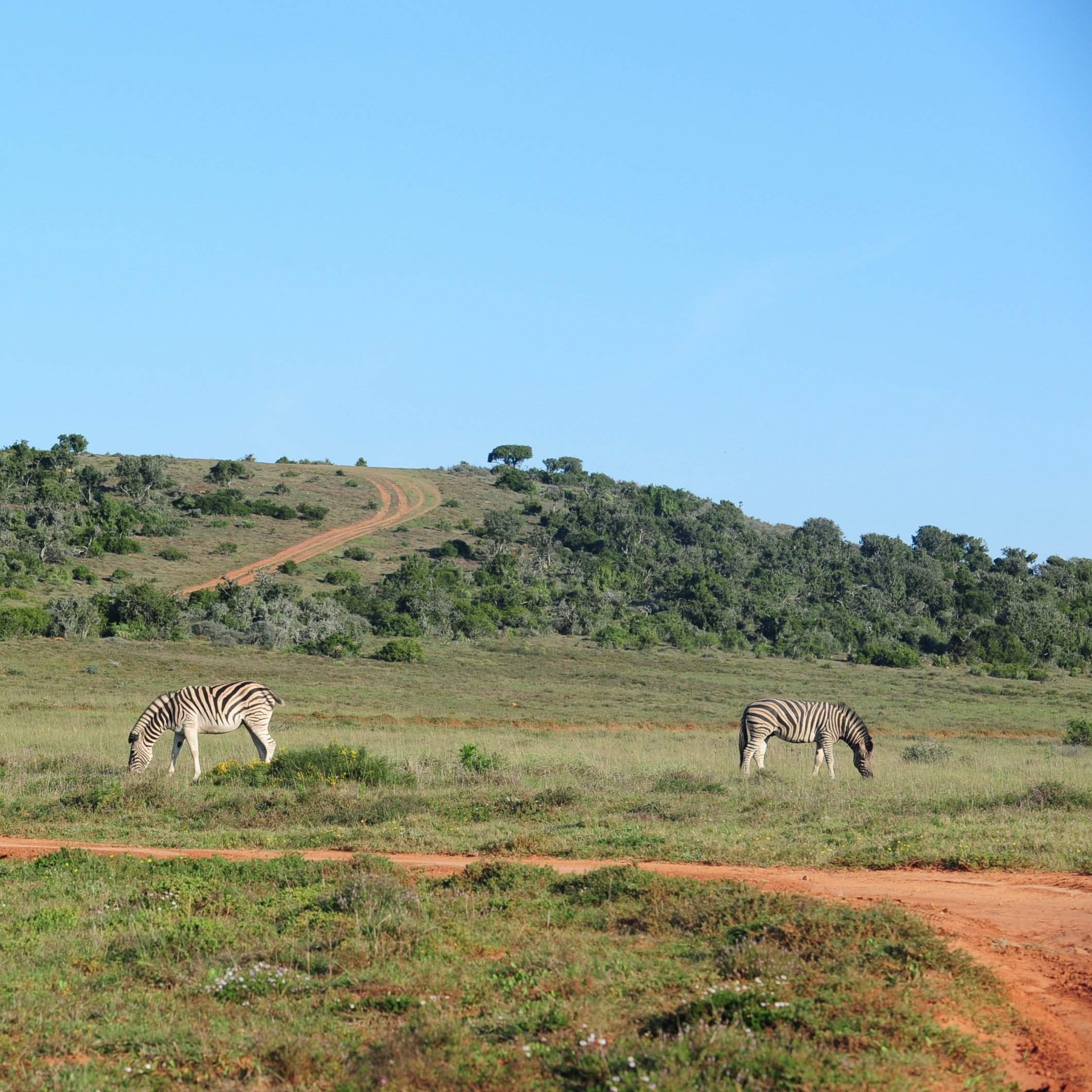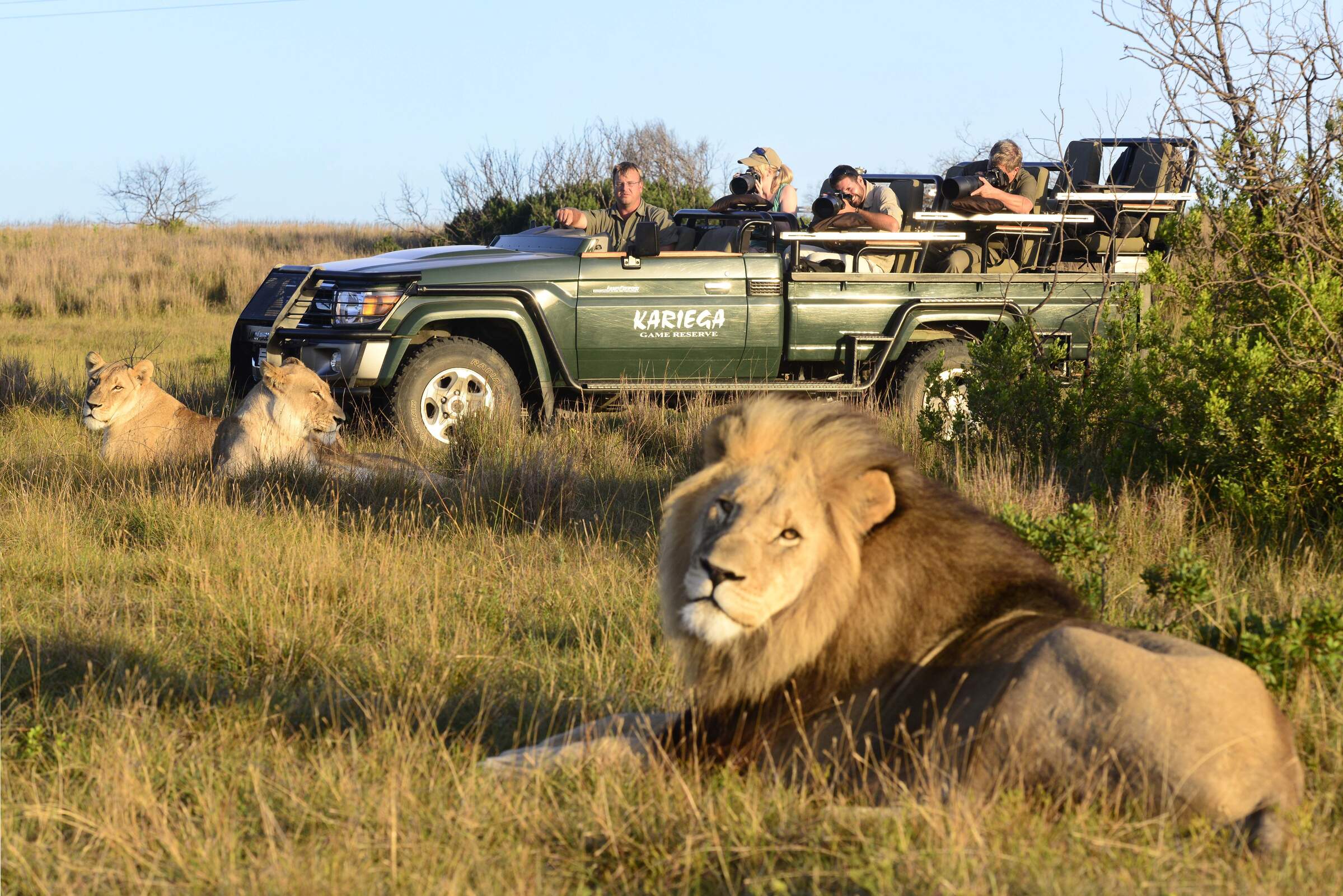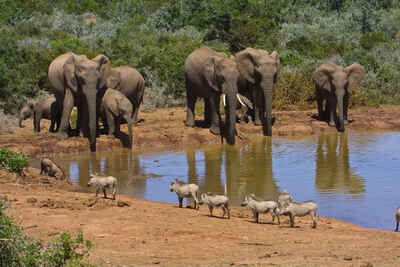
African elephants are the big attraction in this park.
There are safari options offered.
You can do a guided game drive...
...or even drive yourself to view the park's wildlife.
Addo Elephant National Park
Addo Elephant National Park
Addo is synonymous with elephants: over 600 of whom now call this park home and enchant visitors with their close-up encounters.
It wasn’t always like this though. After centuries of hunting, Addo was founded in 1931 to provide sanctuary for the only eleven remaining elephants in the area. As time has passed, so the conservation efforts have steadily grown and the park has expanded to accommodate its ever-expanding herds, and a host of other wildlife from rhinos to meerkats who have relished the park’s protected habitats.
Currently South Africa’s third largest national park, covering 1,800km² of bush and beach, and with plans to further expand its’ reach, Addo Elephant National Park encompasses five of the country’s nine terrestrial biomes and thus a wide variety of vegetation, geology and even weather patterns.
That said, the Addo experience for the vast majority is highly focussed on a relatively small section of the park: the area around Addo Main Camp and Colchester. Both areas are covered in dense, low-level vegetation but the African elephants are the real attraction, and they never disappoint. Occurring in high densities, they are very familiar with vehicles, and as such are incredibly relaxed in their behaviours and movements, making Addo a great first safari experience for a few days. Gentle game-viewing on well-signed routes make the park easily accessible to self-drivers new to the African bush, and a great family-friendly, malaria-free park.
Spine-tinglingly close elephant encounters are frequent and memorable: with herds passing cars at arm’s length, family groups playfully bathing and drinking in the park’s many waterholes and dams throughout the day, and picture-perfect sunset silhouettes of matriarchs leading their herds to overnight cover. And between elephant sightings, there are Cape buffalo, hartebeest herds, leaping kudu, grazing zebra, foraging meerkats and a host of other creatures and birds to spot… and for the fortunate: the elusive, endangered black rhino.
As a very affordable game-viewing addition to the Garden Route, Addo’s elephants make a perfect finale.

South Africa trips focusing on the Cape
Here are 9 great South Africa trips to inspire you
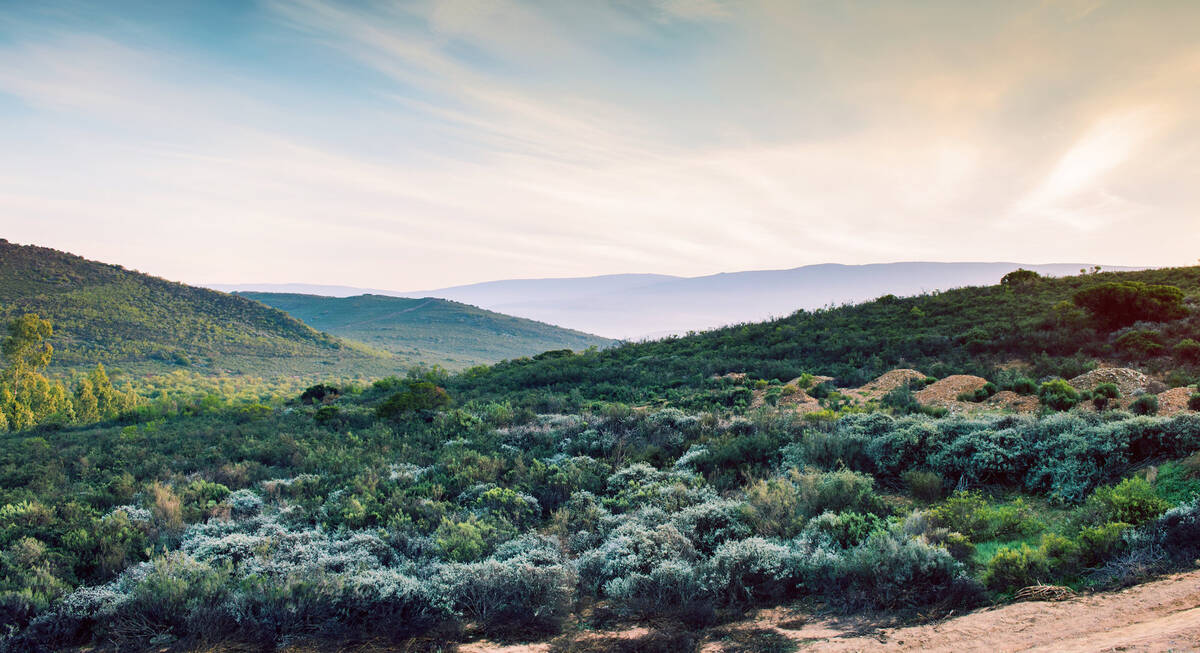
Cape Genet Self-drive Safari
20 days • 8 locations
CAPE TOWN AIRPORT TO CAPE TOWN AIRPORT
Enjoy fine-dining in Cape Town, whale-watching in Hermanus, and a range of walking and water-based activities throughout De Hoop’s Nature Reserve, the Klein Karoo and Plettenberg. This relaxed self-driven safari concludes with stays in The Winelands and Namaqualand.
US$3,670 - US$4,400 per person
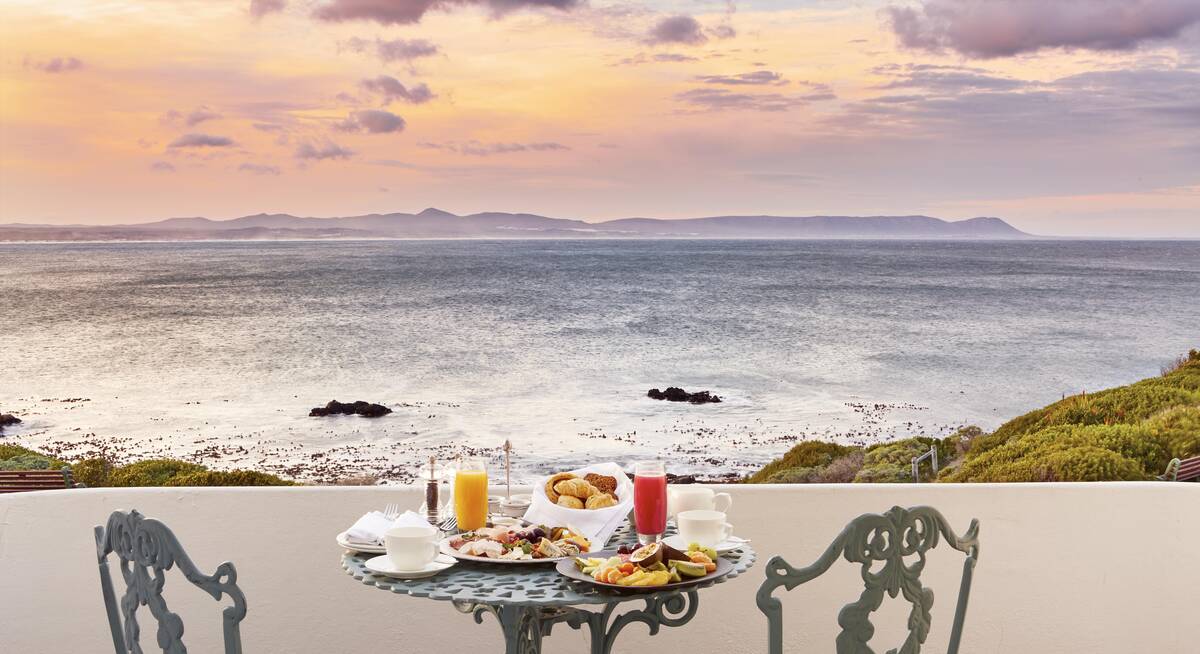
Cape Grysbok Self-drive Safari
20 days • 8 locations
CAPE TOWN AIRPORT TO CAPE TOWN AIRPORT
Explore Cape Town, Hermanus, Franschhoek and Namaqualand, amongst other memorable destinations, during this leisurely self-driven safari. Fine dining, varied activities and impressively comfortable lodges, estates and country houses await.
US$4,840 - US$7,290 per person
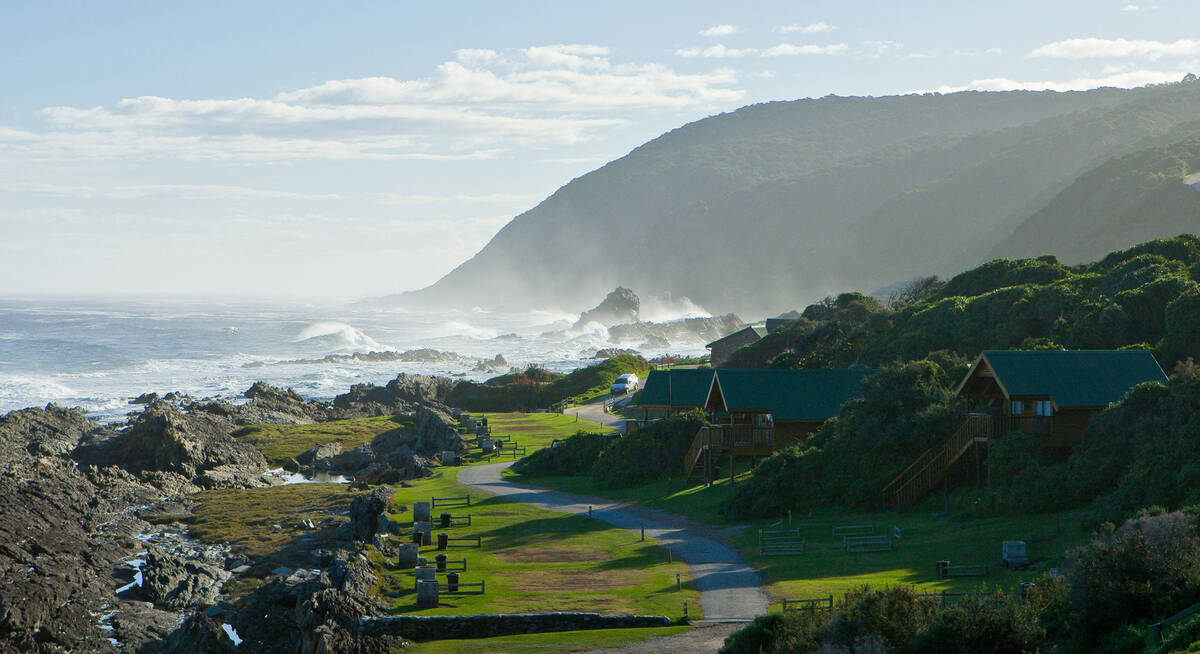
Bontebok Self-drive Safari
12 days • 5 locations
CAPE TOWN AIRPORT TO PORT ELIZABETH AIRPORT
This varied and great-value self-drive trip visits Cape Town, the Winelands and diverse sections of the Garden Route, staying at great places with real local character. It’s ideal for active couples and families who want to explore the Cape’s stunning locations.
US$1,810 - US$1,900 per person
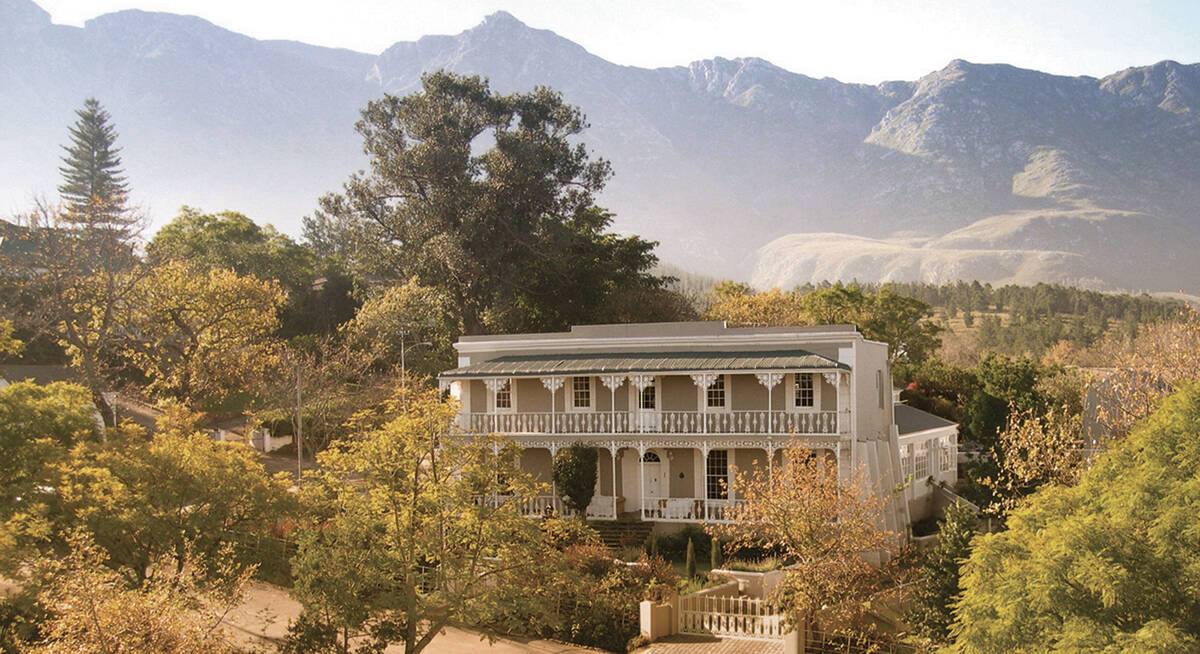
Waterbuck self-drive
12 days • 6 locations
CAPE TOWN AIRPORT TO PORT ELIZABETH AIRPORT
A classic Cape and Garden Route self-drive taken at a leisurely pace and staying in charming boutique hotels. Great food and wine paired with spectacular scenery and an exciting array of activities.
US$3,000 - US$3,220 per person
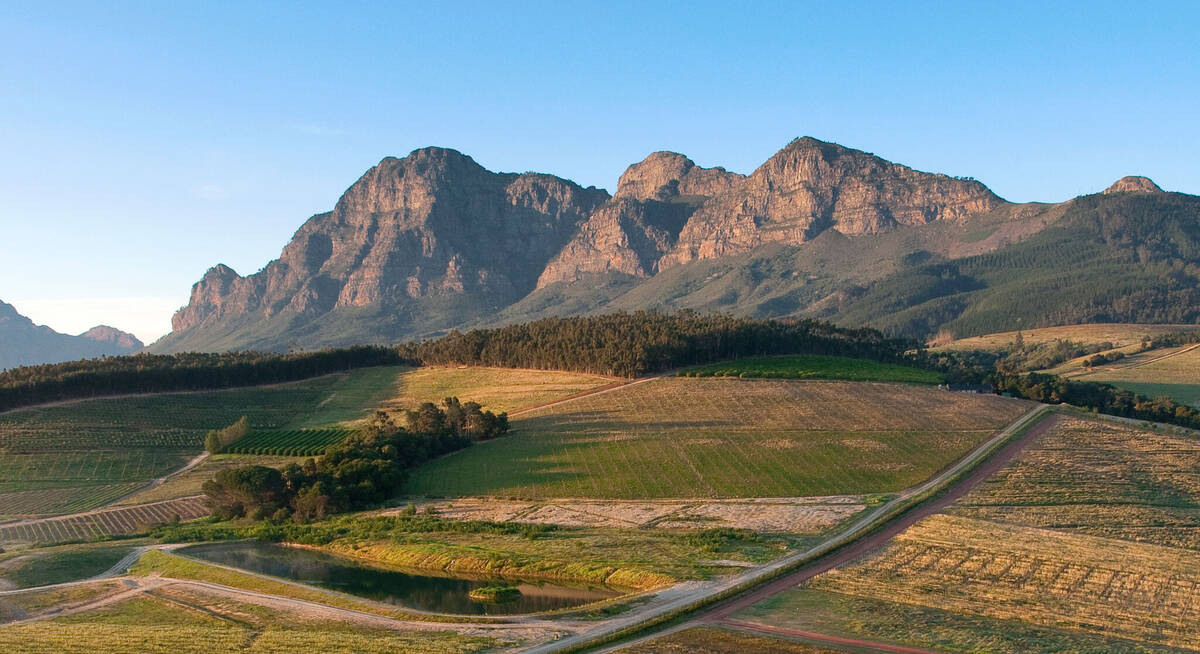
Cape Mountain Zebra Self-drive Safari
12 days • 4 locations
CAPE TOWN AIRPORT TO CAPE TOWN AIRPORT
Fine dining, luxurious accommodation and a wide of range of leisurely activities make this a superbly comfortable self-driven safari. Visit the cosmopolitan Cape Town, tranquil coastal retreats, stylish wine farms and spectacularly peaceful nature reserves.
US$4,550 - US$6,780 per person
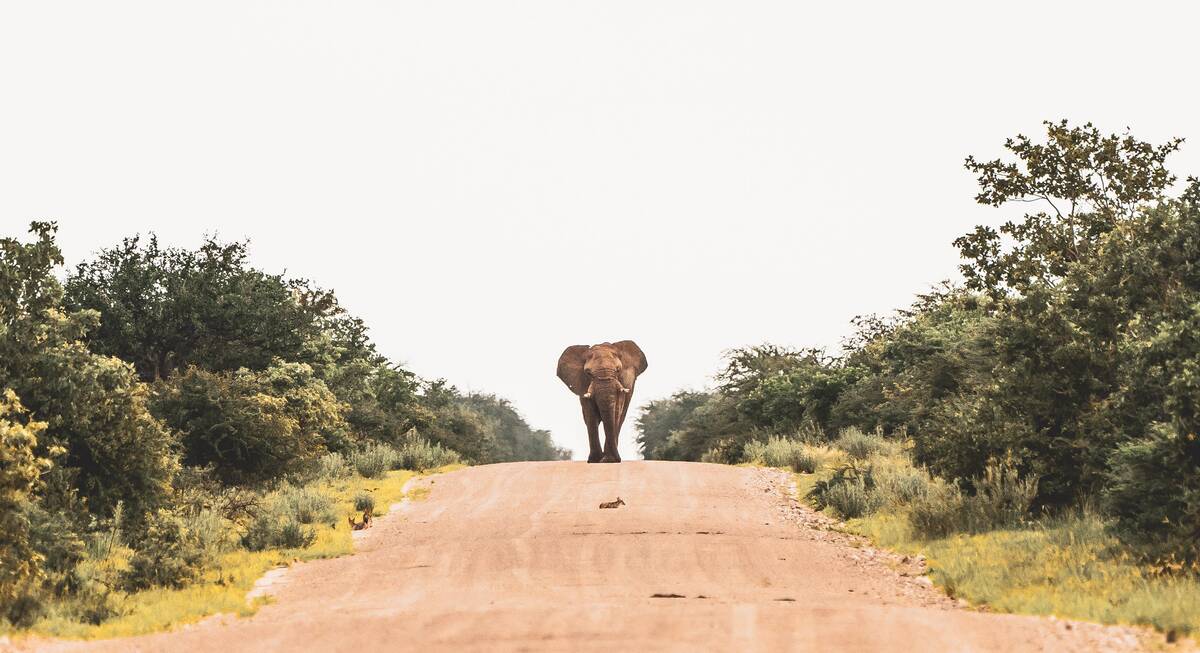
Black Wildebeest Self-drive Safari
19 days • 10 locations
CAPE TOWN AIRPORT TO WINDHOEK AIRPORT
Journey from South Africa’s cosmopolitan Cape Town to central Namibia’s Okonjima Nature Reserve during this self-driven safari. The route passes through a stunning variety of landscapes, offering access to this beautiful continent’s rich diversity.
US$4,170 - US$4,280 per person
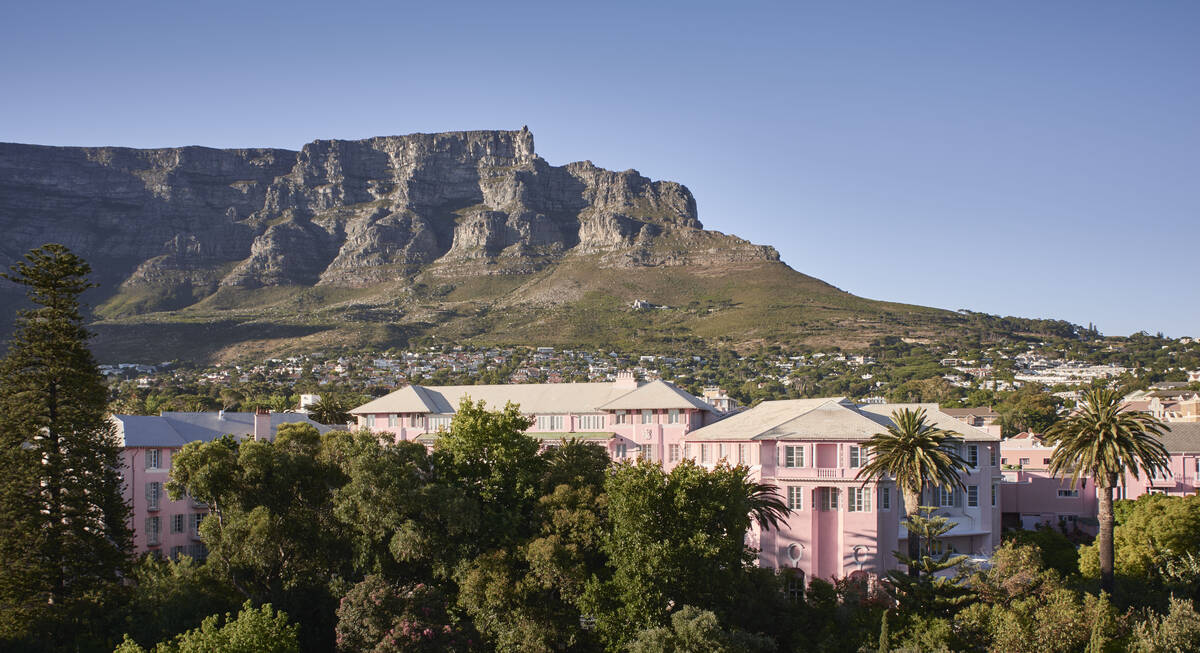
The Highlights of Africa
17 days • 7 locations
CAPE TOWN AIRPORT TO KIGALI AIRPORT
An epic adventure taking in some of Africa’s most incredible sights and wildlife experiences, from Cape Town to the Okavango Delta, Victoria Falls, the Maasai Mara and an encounter with mountain gorillas.
US$16,390 - US$19,790 per person
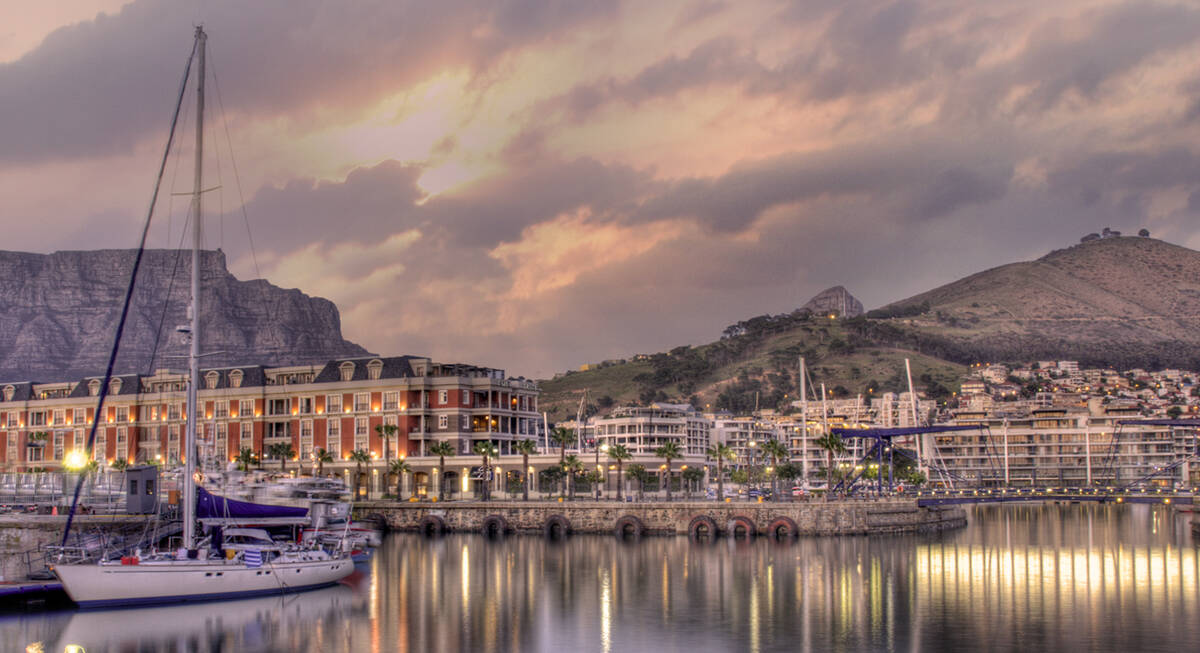
Leopard Safari
13 days • 4 locations
VICTORIA FALLS AIRPORT TO CAPE TOWN AIRPORT
Victoria Falls, Botswana and Cape Town – a classic southern African itinerary combining luxury, wilderness, safari and culture. We can't think of a better way to spend two weeks.
US$14,100 - US$18,040 per person
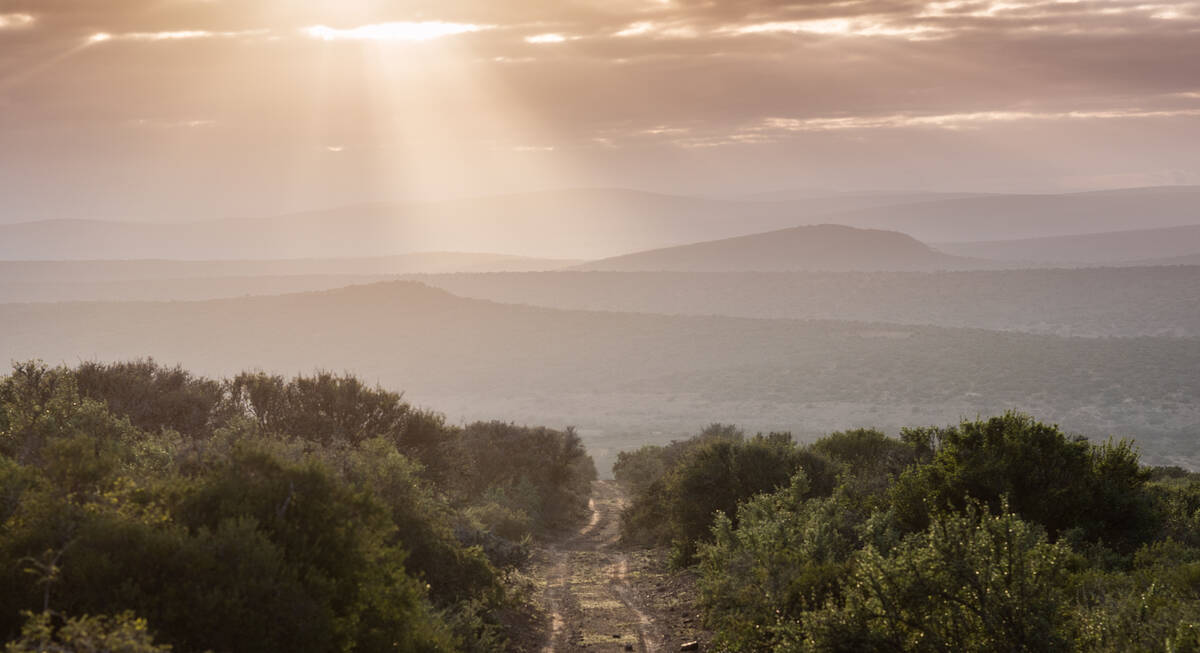
Kwandwe Self-drive Safari
3 days • 1 locations
PORT ELIZABETH AIRPORT TO PORT ELIZABETH AIRPORT
An elegantly stylish lodge that is well suited to families, Kwandwe offers a range of safari activities and the chance to sight all of the "Big 5" during exploration of the Eastern Cape.
US$3,150 - US$4,450 per person
Most recent reviews of trips including Addo Elephant Park
Click below to browse all 23 reviews from Addo Elephant National Park. All from our travellers; all are in full & unedited.
Arrived 31 Oct 2024, 28 nights
"Our Nov 2024 trip"
Overall rating: Excellent
Arrived 4 Apr 2023, 20 nights
"My Apr 2023 trip"
Overall rating: Excellent
Arrived 4 Apr 2022, 17 nights
"My Apr 2022 trip"
Overall rating: Excellent
Arrived 14 Oct 2019, 22 nights
"My 70th Birthday celebratory tour"
Overall rating: Excellent
Arrived 22 Jun 2019, 22 nights
"Family trip to SA in June/July 2019"
Overall rating: Excellent
Arrived 22 Oct 2018, 17 nights
"Another excellent holiday"
Overall rating: Excellent
Arrived 13 Mar 2018, 9 nights
"My Mar 2018 trip"
Overall rating: Excellent
Arrived 22 Nov 2017, 13 nights
"Brilliant short-ish winter sun trip to SA"
Overall rating: Excellent
Arrived 10 Nov 2017, 16 nights
"A really special family trip"
Overall rating: Excellent
Arrived 15 Dec 2015, 18 nights
"My Dec 2015 trip"
Overall rating: Good
Where to stay in Addo Elephant Park
Our suggestions for safari camps in Addo Elephant National Park
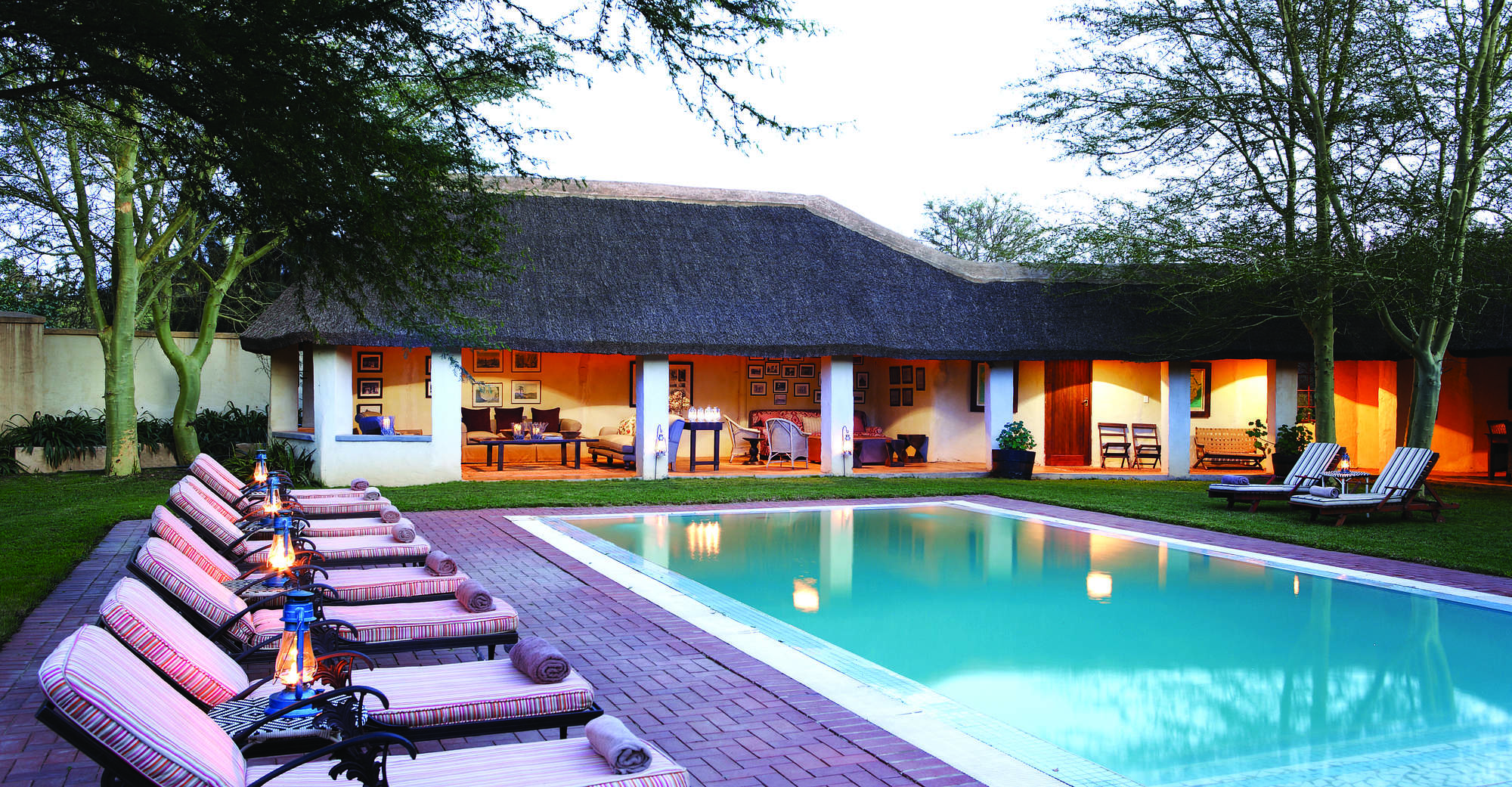
Elephant House
Elephant House is a welcoming, owner-run base for those wishing to explore the Addo Elephant National Park and the surrounding area.
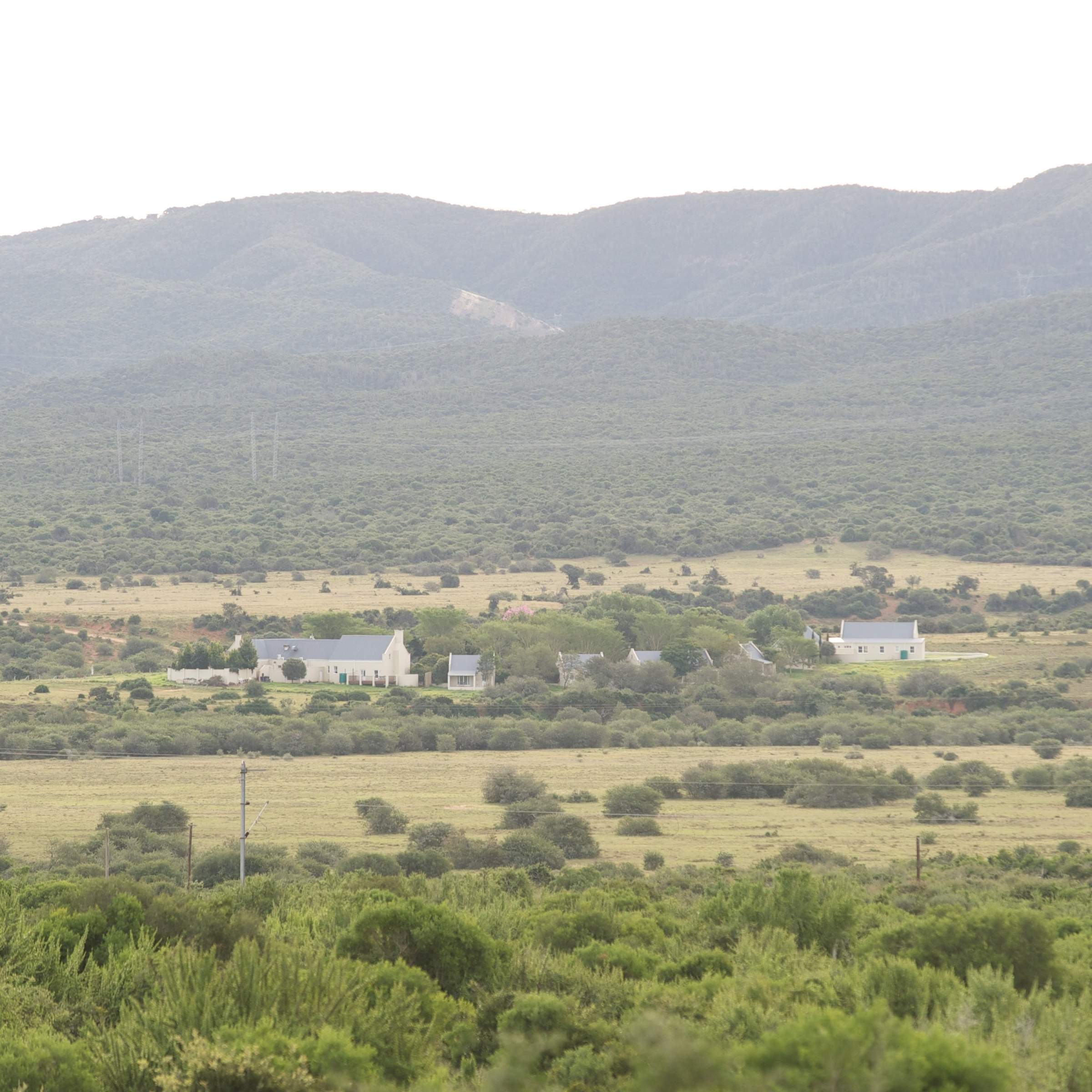
River Bend Lodge
Located on a private concession within the Addo Elephant National Park Riverbend Lodge is a very comfortable base from which to discover Addo.
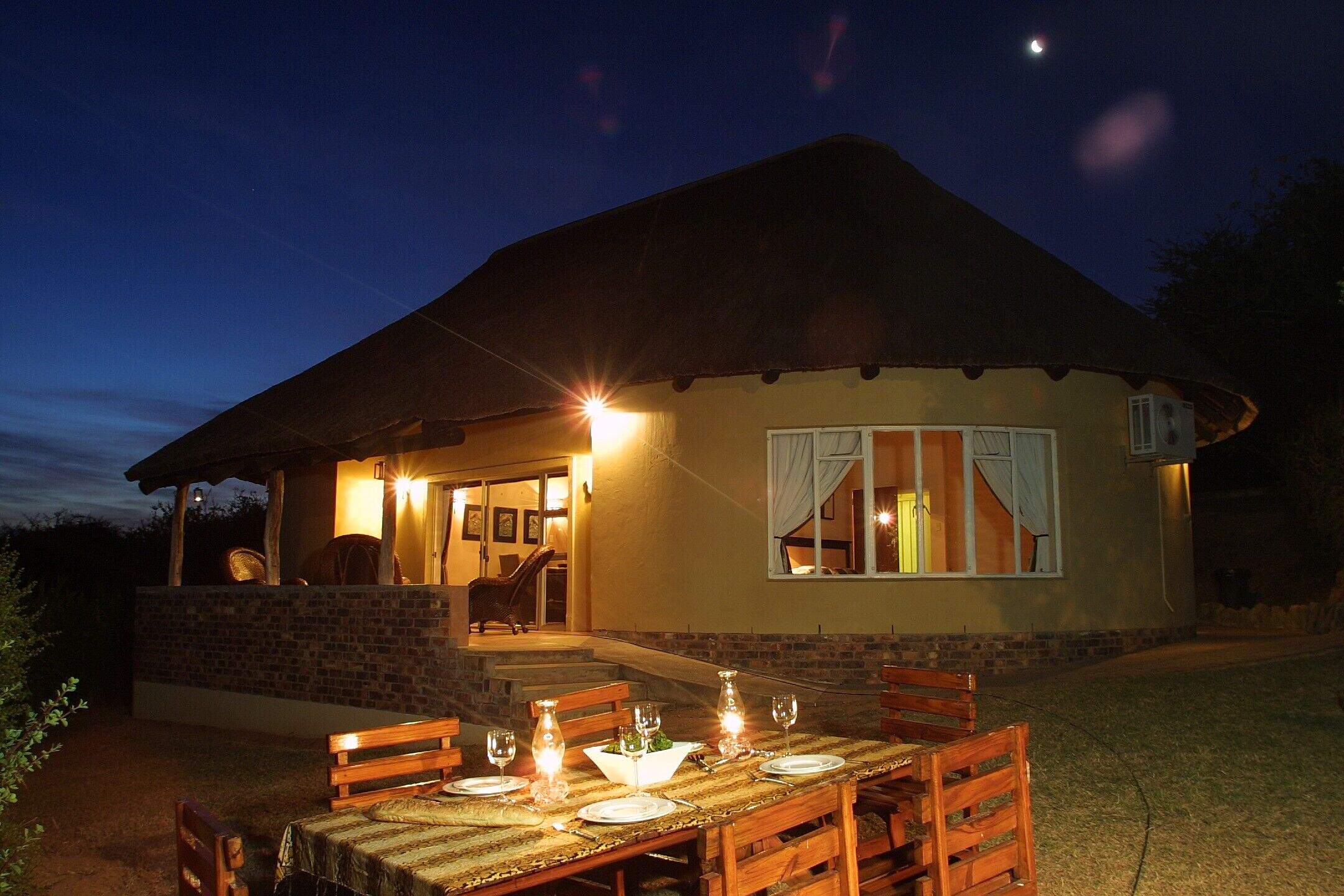
Addo Main Camp
Addo Rest Camp offers a variety of self-catering accommodation types to suit all tastes. Overlooking a floodlit waterhole, the camp allows guests to get a closer view of the elephants in the park.
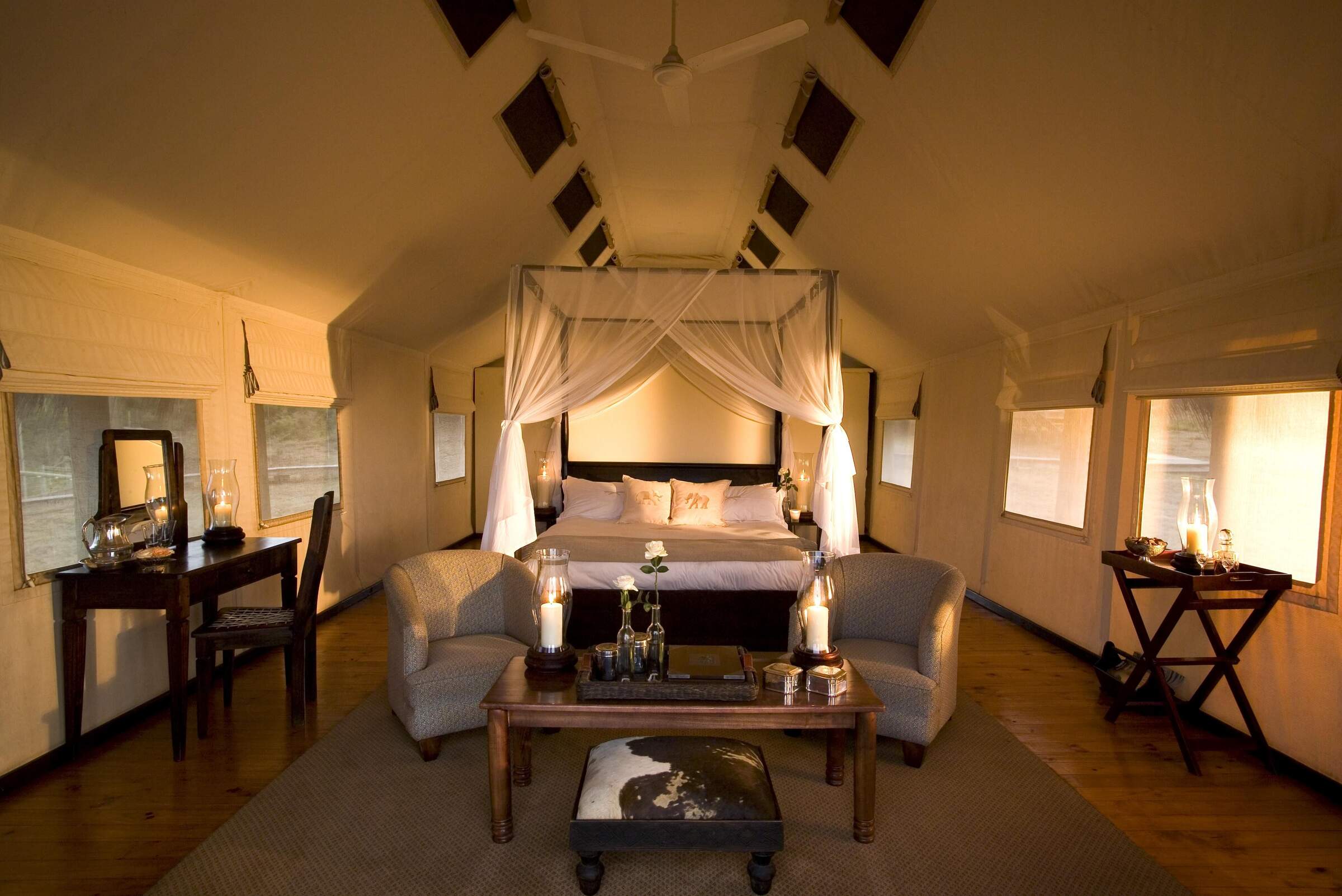
Gorah Elephant Camp
A beautiful safari camp set within Addo Elephant Park. Lovely tented suites and great game viewing make this a great stop along South Africa's glorious Garden Route.
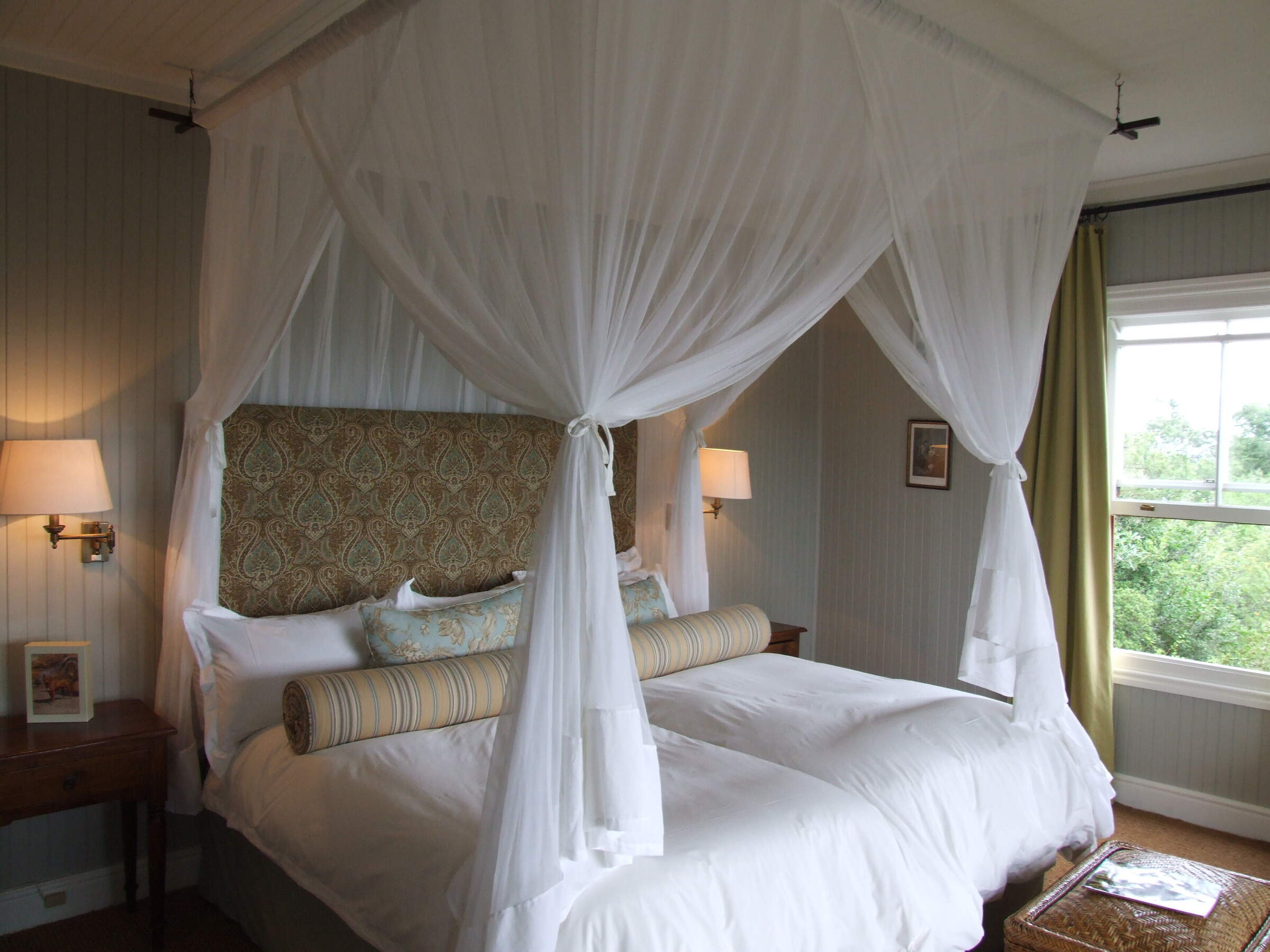
Camp Fig Tree
Camp Fig Tree is a luxurious lodge located just outside Addo Elephant Park. It is well situated for visits to the park itself.
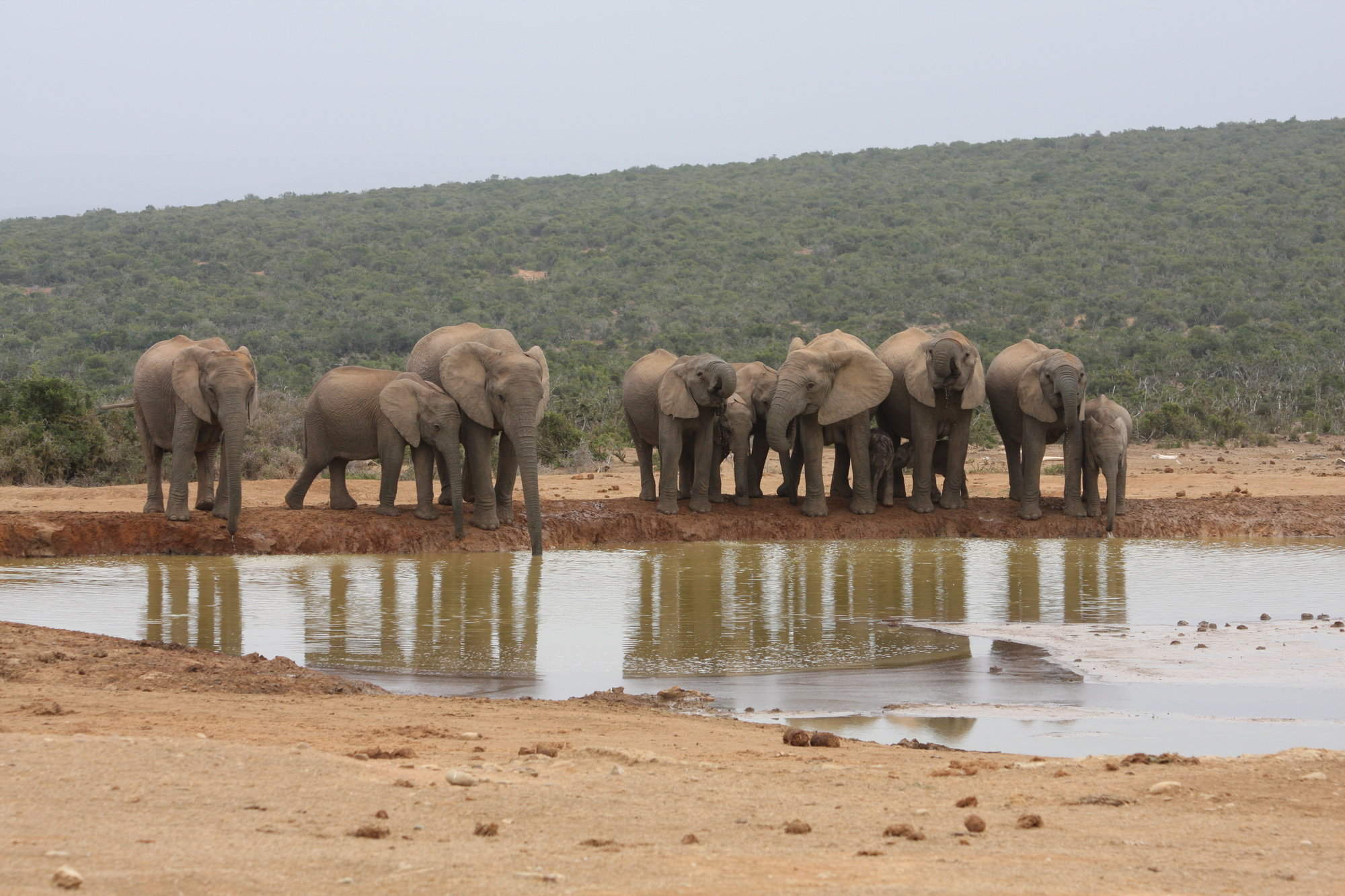
Camp Matyholweni
An easily accessible safari camp in Addo Elephant Park, Matyholweni offers self-catering family cottages, as well as access to the nearby town of Colchester.
Our travellers’ wildlife sightings in Addo Elephant Park
This is their success for sightings in Addo Elephant National Park. Click on a species for more detail. How we work this out.

100% success

100% success

100% success

100% success

80% success

75% success

40% success

20% success

0% success

0% success

0% success

0% success

0% success

0% success

0% success
When to go to Addo Elephant National Park
Our month by month guide: What it's like to visit Addo in South Africa
Jan
Feb
Mar
Apr
May
Jun
Jul
Aug
Sep
Oct
Nov
Dec
South Africa in January
January is considered one of the best months to travel. In Cape Town the weather is hot and generally dry. The Garden Route is also excellent at this time of the year but has a more temperate climate, with slightly lower temperatures and rain can fall at any time of the year. In the Kgalagadi temperatures often top 40°C and short, sharp thunderstorms are also fairly frequent. Wildlife tends to disperse, although birding is excellent.
As this is the high season in the Cape there are numerous events, festivals and outdoor activities to attract visitors. Accommodation books up quickly and it may be necessary to book at least a year in advance. Reservations will often be needed for restaurants and visitor attractions too.
- Hot, largely dry days with clear skies – except on Garden Route
- Wildlife disperses in the Kalahari but birding excellent
- Events, festivals and outdoor activities staged for the high season
- The high season in the Cape, accommodation can cost up to 50% more
- Pre-booking of activities & attractions is essential
Our view
Fantastic: the very best time to visit
Weather in January
South Africa in February
In February conditions are largely the same as in January, although temperatures can be slightly higher, especially in the interior. The wind in Cape Town starts to ease off. Although the Garden Route can experience some rain, the days are pleasantly warm and largely dry.
The Kgalagadi remains very hot, but the birding is still excellent. Wildlife viewing can be tricky especially if there has been some rain, as the resulting long grass can obscure the animals.
For visitors it’s still the high season, but with the local school holidays over and residents back at work, it is less busy than December and January. Accommodation costs remain high and it’s still advisable to pre-book certain activities and restaurants.
- Hot, largely dry days with little cloud
- Wind starts easing in Cape Town
- Slightly less busy than December & January
- Accommodation costs remain high, activities still best pre-booked
Our view
Fantastic: the very best time to visit
Weather in February
South Africa in March
March is still a very good time to visit. Conditions remain dry and very warm in Cape Town, although temperatures start dropping off towards the end of the month. The wind has usually died right down.
The Kalahari remains very hot and in years of good rains vegetation is at its most lush – making wildlife viewing tricky.
Typically, the crowds dwindle, but it can get very busy if Easter falls in March. It is also worth bearing in mind that during major events in March, including the Cape Town Cycle Tour, Cape Epic Mountain Bike Tour, The Cape Town Carnival and the International Jazz Festival, accommodation can get very full.
Attractions remain busy but booking is less essential.
- Temperatures start falling towards the end of the month
- Cape Town hosts a number of world class sport and cultural events
- Wildlife in the Kgalagadi disperses, game viewing more challenging
- Crowds diminish as the high season comes to an end
- Accommodation can get busy during major events
Our view
Fantastic: the very best time to visit
Weather in March
South Africa in April
April is South Africa’s “shoulder” season and is often the most pleasant. Not too hot, not too cold, some rain but not masses. In Cape Town and along the Garden Route days are usually sunny, warm, windless and largely dry, although in Cape Town the chance of rain increases from the end of the month.
In the Kgalagadi the rainy season is typically over and migratory birds are starting to make their journey back up North. Vegetation remains lush but wildlife viewing starts picking up towards the end of the month.
The region is still relatively busy (especially of its still Easter) but it gets quieter towards the end of the month thus availability improves. Accommodation rates start to decrease, and it becomes less important to book restaurants and attractions in advance.
- Temperatures still warm and very pleasant, with little wind.
- Rain starts easing in the Kalahari and migratory birds start to depart
- Less busy, especially towards the end of the month - busy over Easter
- Accommodation frees up and prices start to come down
Our view
A very good time to visit
Weather in April
South Africa in May
May marks the start of the dry season in the Kgalagadi. Days are warm and dry with almost zero rainfall. Night-time/early-morning temperatures can drop towards 0°C. Wildlife viewing is at its peak as animals concentrate around the few remaining water sources.
Days can still be warm and sunny in Cape Town and on the Garden Route, but the weather becomes a lot more variable. May heralds the start of the rainy season in Cape Town and the winelands. Night-time temperatures rarely drop below 10 degrees in the coastal areas.
With far fewer tourists, accommodation prices are at their lowest. There is rarely any need to pre-book activities, but reservations are still advisable at some of the top restaurants.
- Higher chance of rain in Cape Town & the Winelands
- Day time temperatures drop significantly
- Wildlife viewing peaks in the Kgalagadi
- Low season so rarely busy & very few crowds
- Low season rates at the hotels & lodges
Our view
A good time to visit, with pros & cons
Weather in May
South Africa in June
Winter is now in full swing. Maximum temperatures in Cape Town rarely reach 20°C and the rainy season is well under way. Outdoor activities therefore become limited, but a number of high-quality indoor events are organised.
The Garden Route has, in general milder weather and less rain than Cape Town.
June sees the arrival of the first whales which migrate to the South African coastline to give birth.
In the Kgalagadi, daytime temperatures are warm but nights and early mornings are bitterly cold. Wildlife viewing is excellent as animals are drawn to the few remaining permanent water points.
Overall tourist numbers are at their lowest, as are the costs of flights and accommodation.
- Cold & wet weather in Cape Town, Kgalagadi warm days but cold at night
- One of the best months for wildlife viewing in the Kgalagadi
- Whales start arriving to have their calves
- Low visitor numbers & no crowds
- Accommodation & flight prices remain low
Our view
A good time to visit, with pros & cons
Weather in June
South Africa in July
The winter weather continues with very cold nights and early mornings in the Kgalagadi and virtually no rainfall. Vegetation here is really thinning out now and water even more scarce – so wildlife is easy to spot.
Despite the winter and local school holidays, Cape Town remains a great place to visit. On a wet and cold day, the Two Oceans Aquarium, Zeitz Mocca (art museum) and the Cape Town Comedy Club all make for great days out, as does a trip to the wine country or the annual Oyster Festival at Knysna.
By mid-July most of the whales have arrived to give birth. Hermanus is the best place to see them.
At the height of the low season, so accommodation and flight prices remain low.
- Generally cold & wet in the Cape, but good quality indoor events
- Very good wildlife viewing in the Kgalagadi
- Oyster festival in Knysna
- Local school holidays can make places a little busier than usual
- Accommodation and flight prices remain low
Our view
A good time to visit, with pros & cons
Weather in July
South Africa in August
While August experiences mostly wintry weather it does mark the very beginning of spring with temperatures starting to rise. Visitors are drawn to the West Coast and Namaqualand to see the wildflowers, which start blooming in late August and can be seen until mid-September. Whales are still in abundance now too.
The Kgalagadi is now very dry and wildlife vieiwng is still good. Temperatures start climbing towards the end of the month.
Despite the weather , visitor numbers can be high as the northern hemisphere schools close for their summer holidays. It may be a good idea to book certain attractions and restaurants in advance.
Simlarly, although accommodation prices are still low, flight prices can be a little higher than in previous months.
- Temperatures start rising – but still potential for cold & wet weather
- Wildflowers on the West Coast & in Namaqualand
- Good wildlife viewing in the Kgalagadi
- Whales continue to attract visitors
- Can get busy due to northern hemisphere school summer holidays
Our view
A good time to visit, with pros & cons
Weather in August
South Africa in September
Good wildlife viewing in the Kgalagadi continues and daytime temperatures increase quite dramatically. Mornings and evenings are still on the chilly side, but not as cold as they are in June, July and August.
The 1st of September is officially the start of spring in Cape Town. Days become warmer but not quite warm enough to enjoy the city’s beautiful beaches. Venues all over Cape Town play host to various artists during the Cape Town Fringe Festival.
Rainy days are fewer, but night times can still get chilly. Many hotels are still charging low season rates making September great value for money.
Elsewhere, Hermanus hosts the popular annual Whale Festival, and in the West of the Cape, wildflowers continue to bloom until the middle of the month.
- The start of spring; temperatures start rising
- Whale festival in Hermanus
- Cape Town Fringe Ferstival attracts a wide range of artists
- Wildflowers blooming well until the middle of the month
- Good wildlife viewing continues in the Kgalagadi
Our view
A very good time to visit
Weather in September
South Africa in October
The weather starts warming up nicely, Cape Town experiences pleasant days, with much less rain, nights can still be quite cool, but not cold. Some days are now warm enough to enjoy the beach. This is one of the best months to visit the Cape Region.
October is one of the hottest months in the Kalahari. Water remains very scarce, so the wildlife viewing is still very good. Towards the end of the month the odd spectacular thunderstorm is possible with much lightning and thunder. Migratory birds start to arrive, and resident species gear up for the breeding season.
The whales are still present with Hermanus and False Bay the best places to see them.
- Days start warming up; fewer rainy days in Cape Town
- Very hot in the Kalahari – thunderstorms season starts
- Migratory birds start arriving & resident birds start breeding
- Whale watching still excellent in Hermanus and False Bay areas
- Start of the high season, getting busy and accommodation prices rise
Our view
A very good time to visit
Weather in October
South Africa in November
By November Cape Town is experiencing summer conditions with hot, clear days and warm, pleasant evenings. It’s a great month to enjoy the beaches before the peak holiday season in December. There are no real downsides to visiting in November and you may even get a few accommodation specials before prices go up for the festive season. Kirstenbosch Botanical Gardens begins their summer outdoor concerts with local and international artists performing.
The Kgalagadi remains hot but thunderstorms are a bit more regular. With the rains, water sources become more plentiful and wildlife disperses but this is when herbivores such as Springbok start lambing. Photography improves as conditions become less hazy.
This is the last month for regular whale sightings – they tend to migrate back down south by early December.
- Summer now in full swing, with temperatures often reaching 30°C
- Rainy days scarce; evenings warm & very pleasant
- Antelope start lambing in the Kgalagadi; wildlife generally dispersed
- Last month for regular whale sightings
- Good time to visit Cape Town before the peak holiday season
Our view
Fantastic: the very best time to visit
Weather in November
South Africa in December
December is usually Cape Town’s hottest month when temperatures frequently breach 30°C. You can expect hot and cloudless days, and almost no rain but December does see the occasional very windy day.
The Kalahari is still hot, but temperatures are not quite as high as previous months. With the rainfall the bush transforms into various shades of green. Wildlife disperses as water become more widely available.
The Garden Route enjoys warm to hot days with rain at any time but usually not over an extended period.
Mid to late December becomes incredibly busy with concerts, festivals and various outdoor activities in Cape Town. Hotel prices rise, tourist attractions and beaches are crowded and most popular sites and restaurants need to be booked in advance.
- Long, hot sunny days
- Kgalagadi bursts into life as rainy season kicks in
- Wildlife viewing a bit trickier as wildlife disperses
- Cape Town buzzing with concerts, events, festivals etc
- Peak season: attractions get very busy & accommodation costs rise
Our view
Fantastic: the very best time to visit
Weather in December
Addo Elephant National Park: In detail
Addo Elephant National Park
At the eastern end of South Africa’s Cape, just an hour's drive from Port Elizabeth, the extensive Addo Elephant National Park sits just beyond the eastern end of the Garden Route. Currently it’s the third largest park in South Africa, spreading for about 1,800km² and including a marine section with a few offshore islands.
Addo Elephant Park’s sections: where to go
- Darlington section in the far north-west, with the vast Darlington Lake and its Dam, which is very nice for fishing, some private 4WD trails and Darlington Lake Lodge as accommodation.
- East of Darlington is the private Kuzuko Contractual Area where you can find the five-star luxury Kuzuko Lodge.
- South of Kuzuko, the Kabouga section offers 4WD Trails and canoeing on the Sundays River from Kabouga Cottage and Mvubu Lodge.
- The rugged, wooded Zuurberg Mountains section including the remote Narina Bush Camp in the centre of Addo Park; worth coming for hiking, abundant birdlife and smaller wildlife.
- East of Zuurberg, the National Parks run their horse trails in the Nyati section. Here you’ll find the private concession of the luxurious River Bend Lodge and, just outside the park, Camp Fig Tree.
- Addo’s main game area – the part visited by most travellers, is around Addo Main Camp, Spekboom Tented Camp and exclusive Gorah Elephant Camp. This is the main network of roads for self-drive visitors, and you’ll also find guided game drives, guided horse trails, birding and the PPC Discovery Trail.
- South of the main area, and contiguous with it, is the Colchester section which includes Camp Matyholweni, where activities focus on game viewing from your own vehicle. On the nearby Sundays River, birding, fishing, paddling, canoeing and boat trips are possible.
- Separated from the rest of the park, the Woody Cape section, whose hiking trails lead through various vegetation and stunning scenery along the Cape’s coastline, dune fields, fynbos and forests.
- Finally Addo Park’s marine section consists of the Bird and St Croix Island groups, which are only rarely accessible to the public.
Vegetation in Addo Elephant National Park
Terrestrial wildlife in Addo National Park
However, in our experience the park doesn't offer reliable sightings of many of its resident species, even the larger mammals. Although present, many species are rarely seen. Apart from the elephant, you will almost certainly see good numbers of kudu, warthog, Burchell's zebra and eland; in fact, we don't know of any park where either kudu or warthog seem to be more common – they seem to be everywhere in Addo's main area!
Amongst Addo's other notable residents are black rhino; endemic flightless dung-beetles, which are almost exclusively found in Addo Elephant Park; and a herd of disease-free Cape buffalo.
Other antelope found here include red hartebeest, common duiker, bushbuck and Cape grysbok, whilst the main predators are lion, leopard and spotted hyena – with elusive caracals and small-spotted genets occasionally appearing at night.
We were lucky enough to see a mob of meerkats on our last visit, as well as many of the much more common and usually-solitary yellow mongooses. Aardwolfs, aardvarks and bat-eared foxes compete for the many termites – whilst the park’s honey badgers, porcupines and vervet monkeys are usually much less choosy about their food.
Birdlife in Addo
Some of Addo Elephant Park’s specials, and more interesting birds, include karoo and Cape robins, bokmakierie, southern boubou, southern tchagra, Cape bunting, brown-hooded kingfisher, fiscal flycatcher, fork-tailed drongo, malachite and greater double-collared sunbird olive bush shrike, Cape batis, Knysna turaco, black cuckoo, grey cuckoo-shrike, chorister robin-chat, Cape parrot, Denham’s bustard, black-winged plover, pririt batis, rufous-eared warbler and karoo chat.
Of course one of the most visible bird species in many areas of Addo is the ostrich, which is fairly common and frequently sighted in the main game area.
Crowned eagles breed in the wood-covered kloofs of the Zuurberg mountains, whilst on the coast African black oyster-catchers are really special birds to watch.
Famous individual animals
Domkrag used to lift cars up at the back, just like male tortoises do to prove dominant over another. Its shell is now displayed at Addo Main Camp, together with the head of Hapoor – the only elephant to have ever escaped the park’s ‘elephant-proof’ fence. Unfortunately Hapoor had to be shot shortly after this, due to its aggression towards humans (which many speculate may have been due to an early experience with a hunter).
Marine wildlife in Addo Elephant Park
With 2,500 breeding pairs of endangered African penguins, St. Croix Island is home to the world’s largest breeding colony of those. On Black Rocks, within the Bird Island Group, there is a breeding colony of Cape fur seals, and Bird Island itself hosts the world’s largest colony of Cape gannets.
However, please note that there is only rarely public access to Bird Island because of the ecological sensitivity of the island. Whale watching can be arranged with private operators in Port Elizabeth.
Activities in Addo Elephant Park
Only a relatively small section of the park is used for self-drive wildlife safaris: the area around Addo Main Camp and Colchester section. There you can drive with your own vehicle, at your own schedule, during the day. Alternatively, it’s also possible to pick up organised game drives in open-topped land rovers and trucks with knowledgeable guides from Addo Main Camp.
On game drives in Addo National Park you can expect high counts of elephants, kudu and warthog, secondarily zebra and eland. On our most recent visit we also spotted some red hartebeest and, two or three times, individual yellow mongooses which all had the habit of standing up and looking around almost like a meerkat. For some travellers the flightless dung beetle might be of special interest, as it is almost only found in Addo Elephant Park.
For a nice combination, riding safaris are available as well.
Other activities in the area include horse riding and (guided) walking, mainly in the park sections further north, 4WD trails, picnics and canoeing. There’s also an operation offering elephant-back safaris near to the park.
Map of Addo Elephant National Park
Ideas for where to stay in and around Addo: some privately owned, others run by SA National Parks - the government authority which runs the park.
Best 6 lodges and safari camps in Addo Elephant National Park
Private B&Bs and guesthouses are in abundance around Addo, especially among the citrus groves of the Sundays River Valley. Listed below are our recommendations for nice places to stay in this region. Ask us for more details of what's likely to suit you best!

Elephant House
Elephant House is a welcoming, owner-run base for those wishing to explore the Addo Elephant National Park and the surrounding area.

River Bend Lodge
Located on a private concession within the Addo Elephant National Park Riverbend Lodge is a very comfortable base from which to discover Addo.

Addo Main Camp
Addo Rest Camp offers a variety of self-catering accommodation types to suit all tastes. Overlooking a floodlit waterhole, the camp allows guests to get a closer view of the elephants in the park.

Gorah Elephant Camp
A beautiful safari camp set within Addo Elephant Park. Lovely tented suites and great game viewing make this a great stop along South Africa's glorious Garden Route.

Camp Fig Tree
Camp Fig Tree is a luxurious lodge located just outside Addo Elephant Park. It is well situated for visits to the park itself.

Camp Matyholweni
An easily accessible safari camp in Addo Elephant Park, Matyholweni offers self-catering family cottages, as well as access to the nearby town of Colchester.

Looking for inspiration on where to travel next?
Visit our trip chooser to explore your options and find inspiration for your perfect African adventure
Inspire me